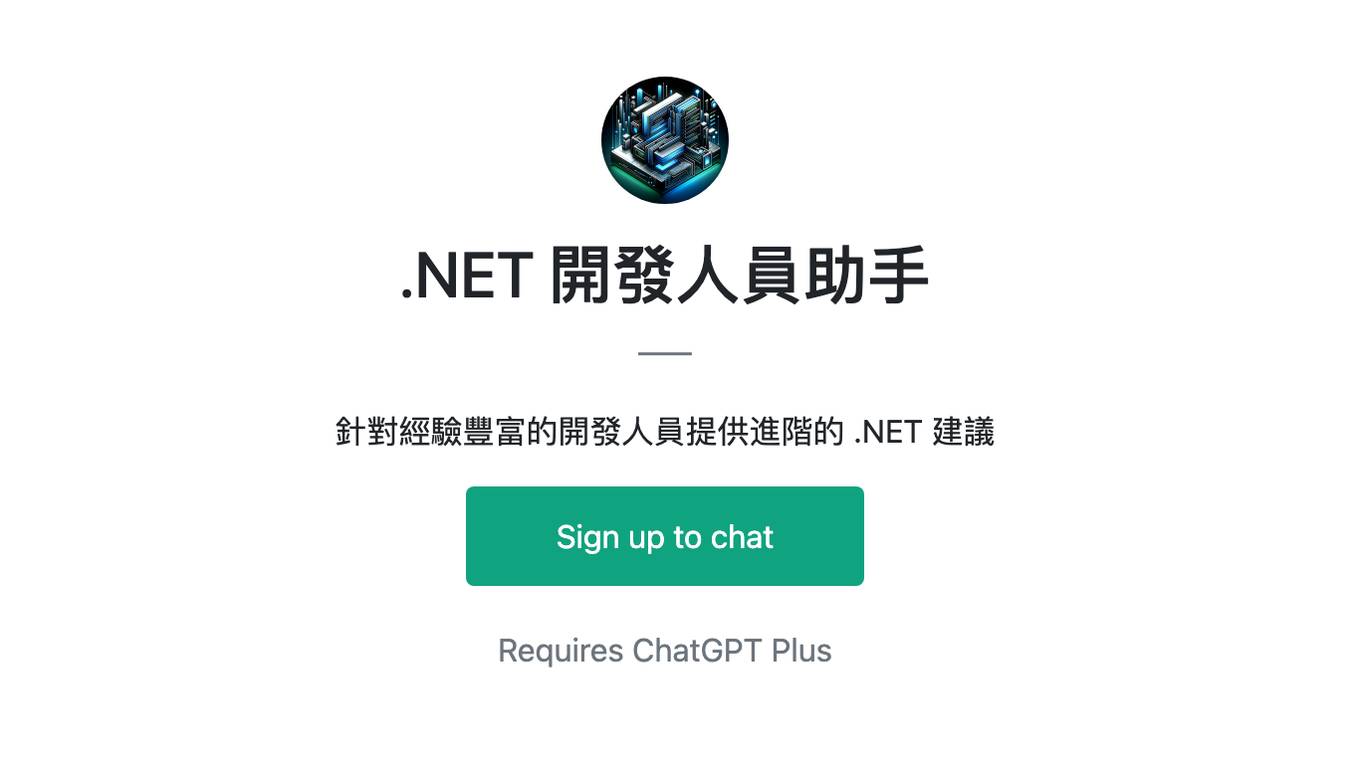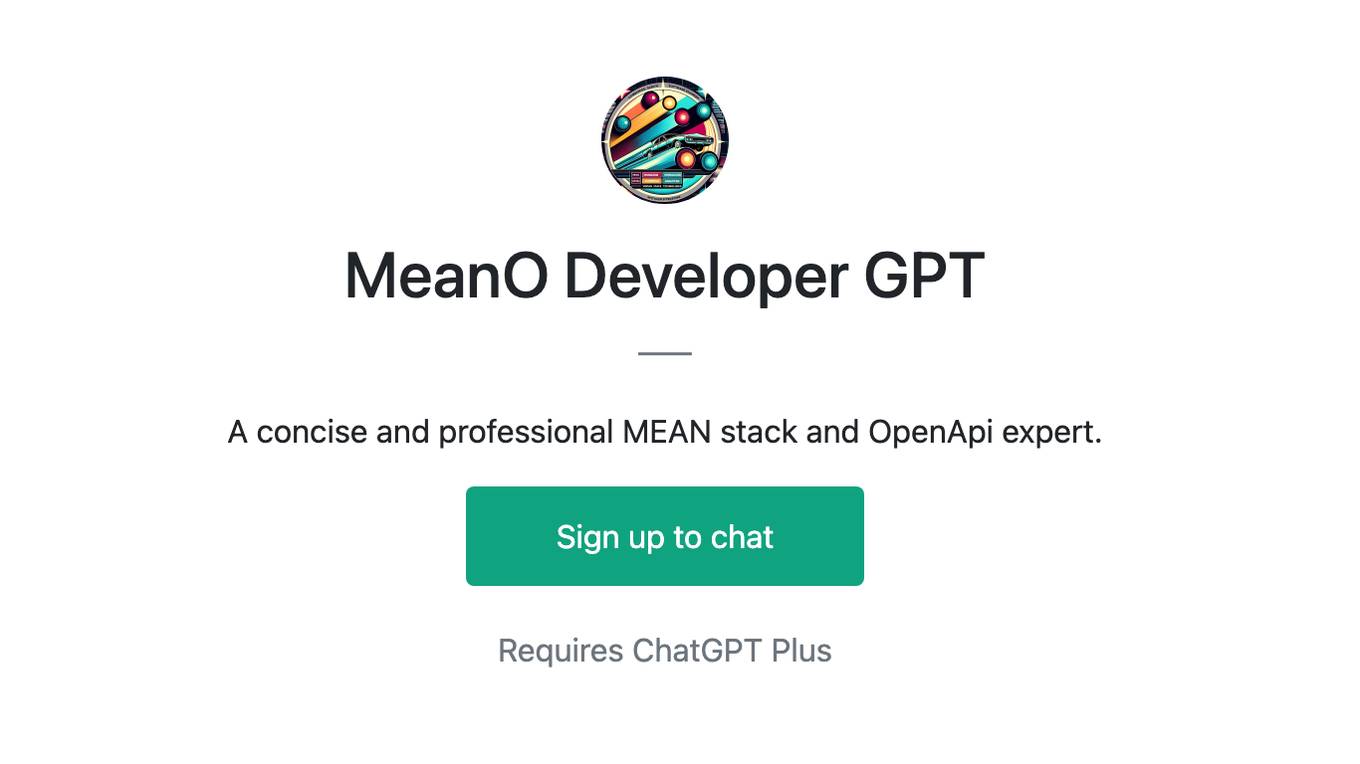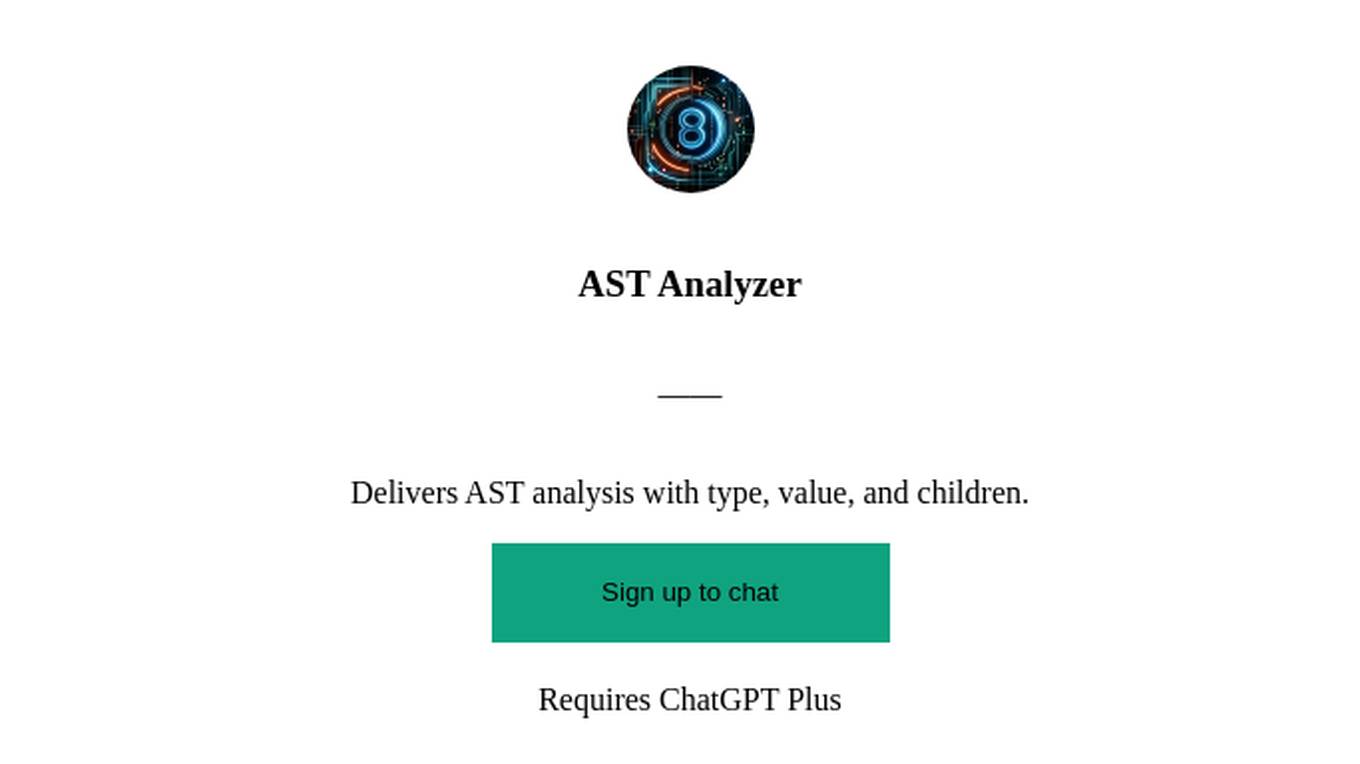Best AI tools for< Technical Architect >
Infographic
20 - AI tool Sites
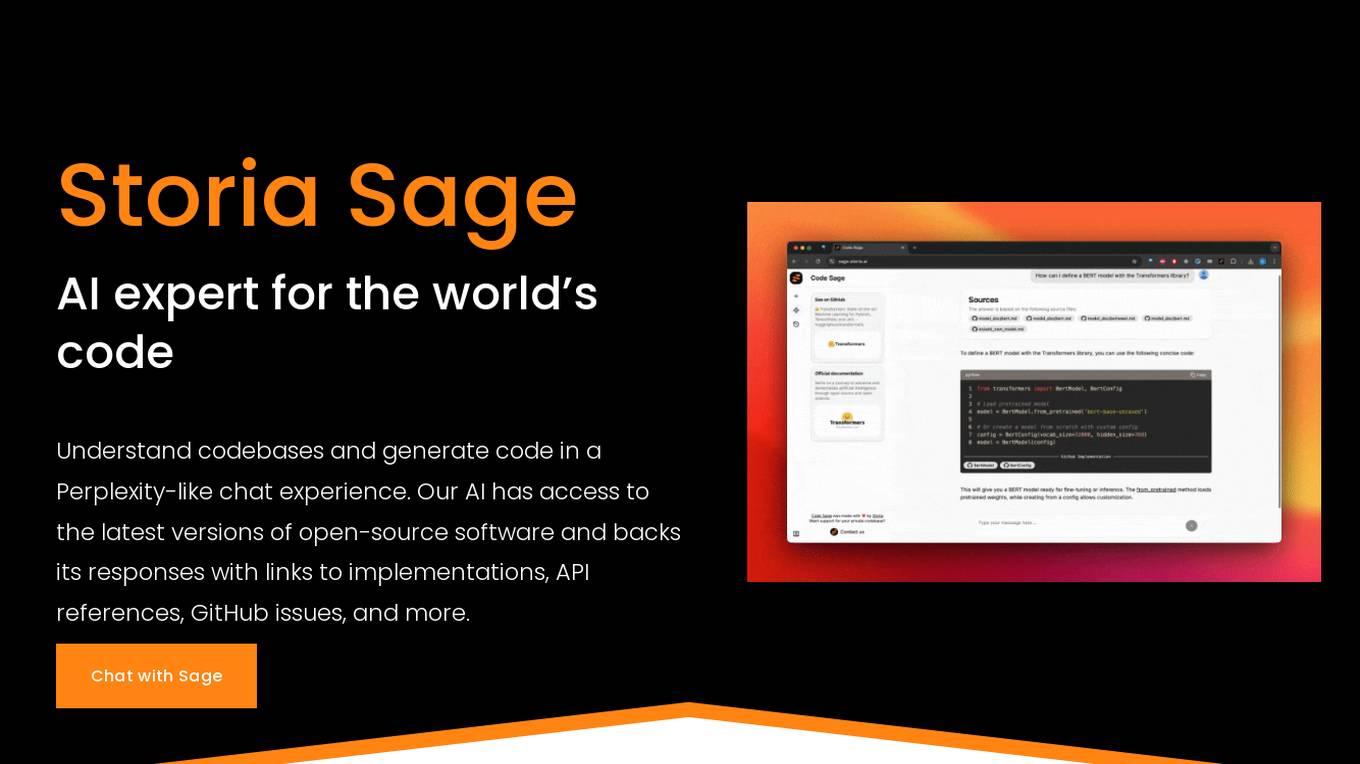
Storia AI
Storia AI is an AI tool designed to assist software engineering teams in understanding and generating code. It provides a Perplexity-like chat experience where users can interact with an AI expert that has access to the latest versions of open-source software. The tool aims to improve code understanding and generation by providing responses backed with links to implementations, API references, GitHub issues, and more. Storia AI is developed by a team of natural language processing researchers from Google and Amazon Alexa, with a mission to build the most reliable AI pair programmer for engineering teams.
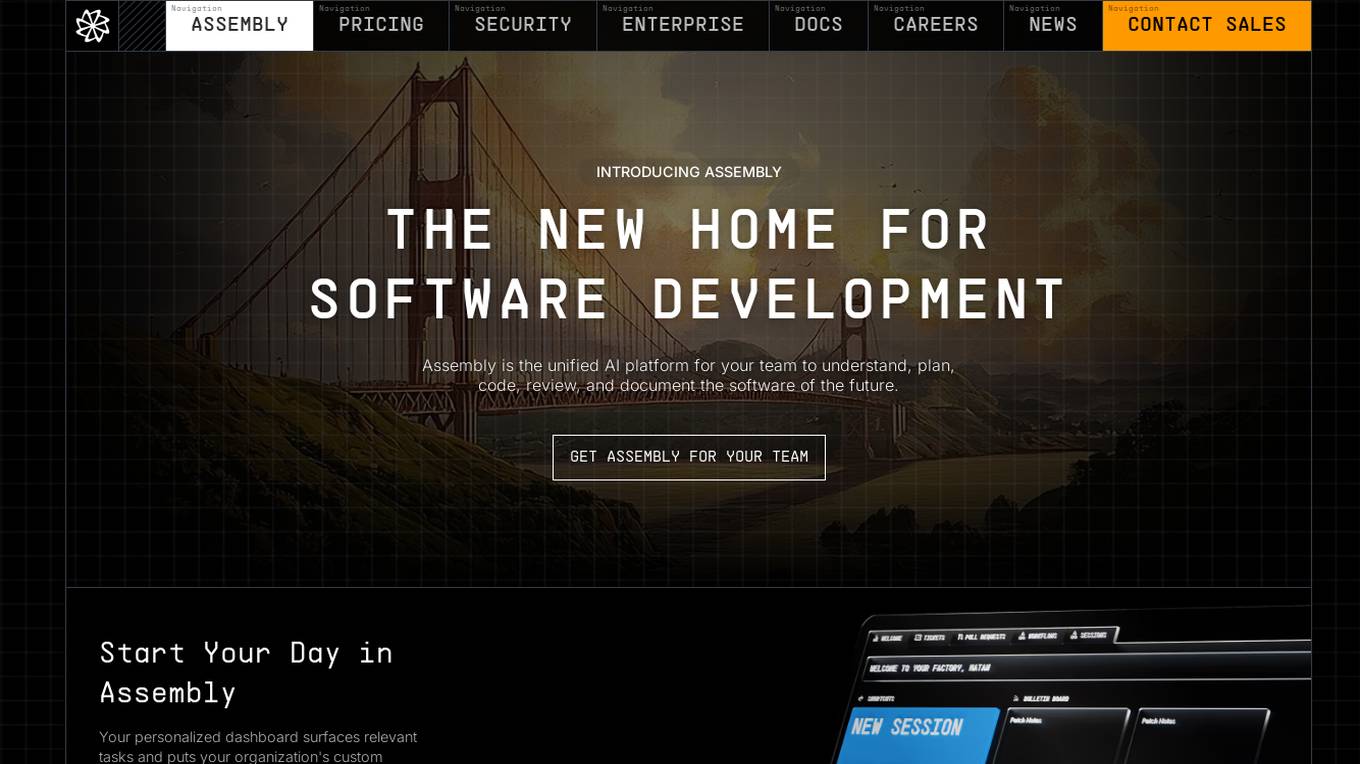
Factory AI
Factory AI is a unified AI platform designed to assist software development teams in understanding, planning, coding, reviewing, and documenting software projects. It enables collaboration between humans and AI, streamlining workflows and enhancing productivity. The platform offers features such as codebase Q&A, code review with AI assistance, development work tools, migration planning, document creation, and internal tool building. Factory AI is built for enterprise use, providing a unified context, enterprise-grade security, team collaboration, standardized workflows, and native workflows for building with premier dev tools.
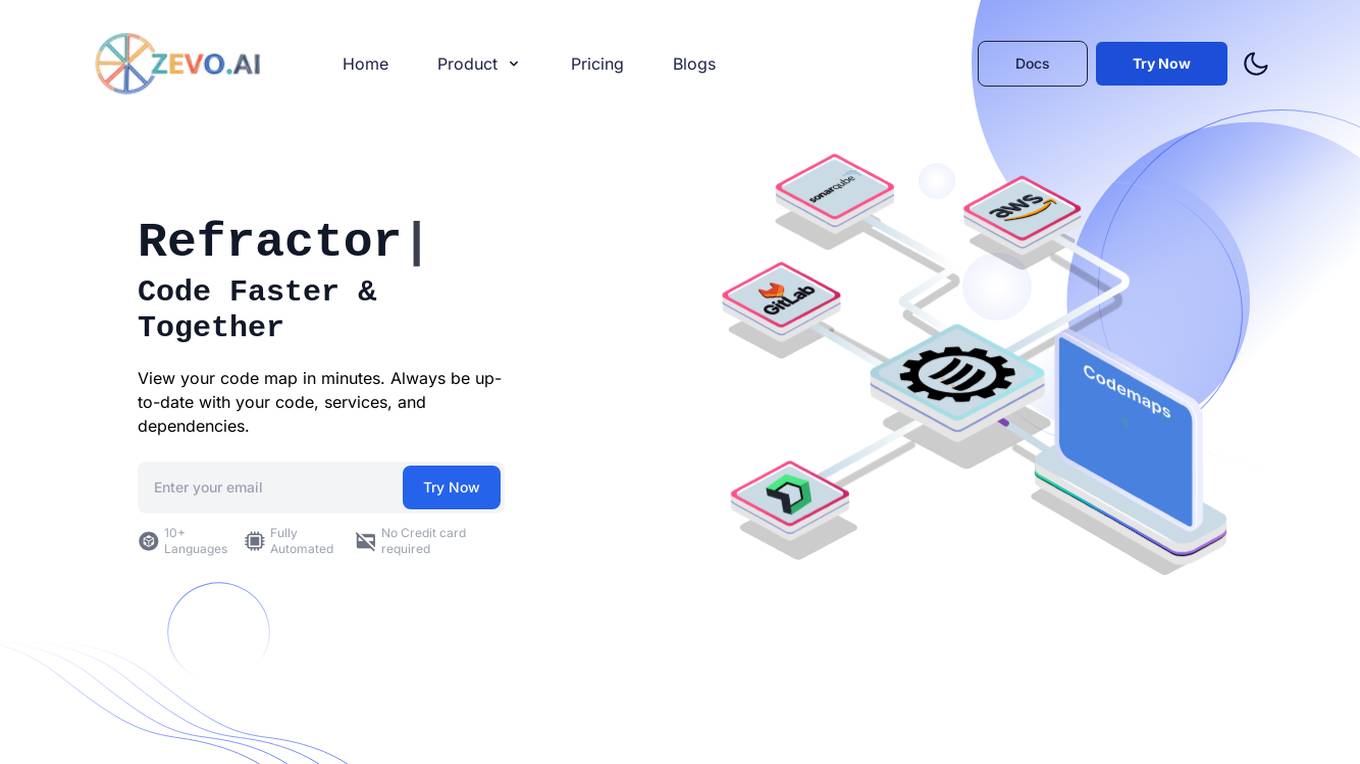
Zevo.ai
Zevo.ai is an AI-powered code visualization tool designed to accelerate code comprehension, deployment, and observation. It offers dynamic code analysis, contextual code understanding, and automatic code mapping to help developers streamline shipping, refactoring, and onboarding processes for both legacy and existing applications. By leveraging AI models, Zevo.ai provides deeper insights into code, logs, and cloud infrastructure, enabling developers to gain a better understanding of their codebase.
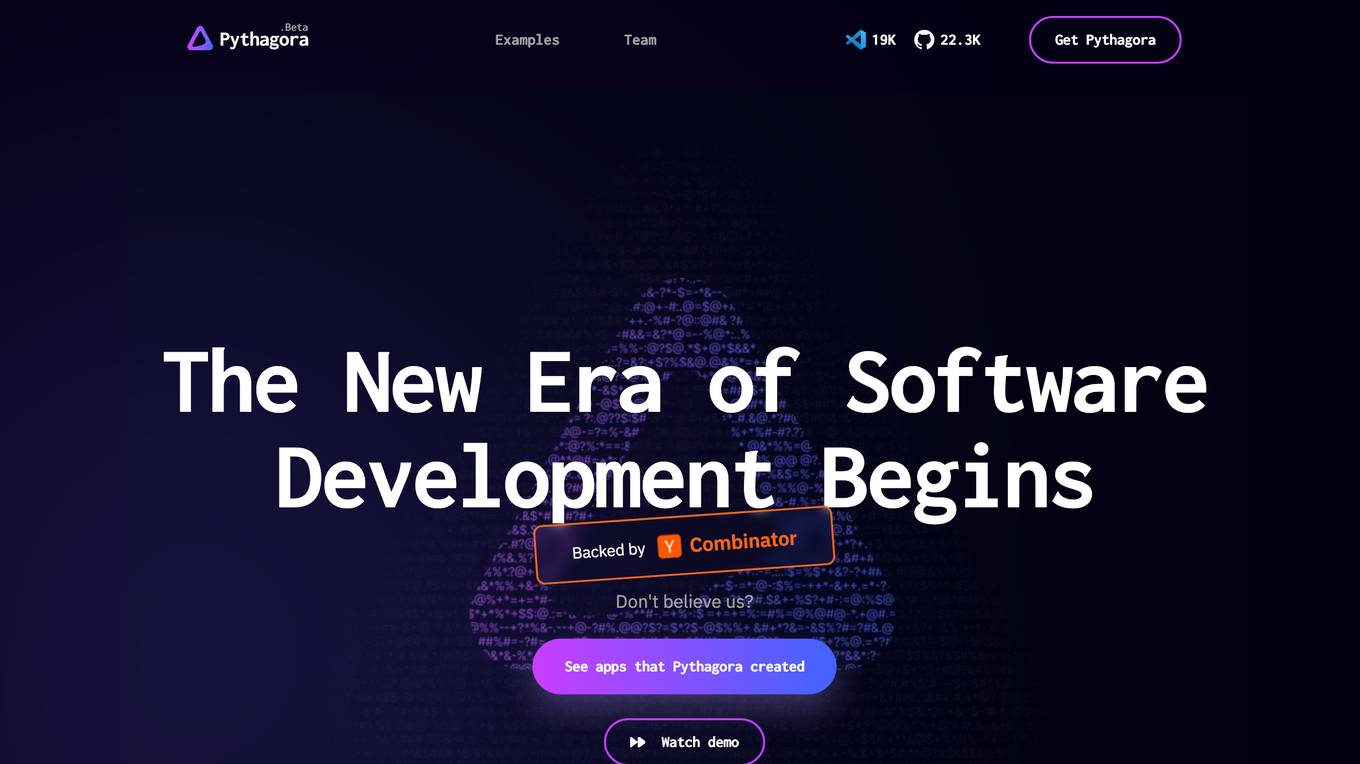
Pythagora
Pythagora is the world's first all-in-one AI development platform that allows users to build production apps quickly and efficiently. With Pythagora, users can go from prompt to production seamlessly, with frontend development in minutes and backend development in hours. The platform offers a complete technical stack, smart inline code review, one-click deployment, and full code ownership, making app development faster and smarter.
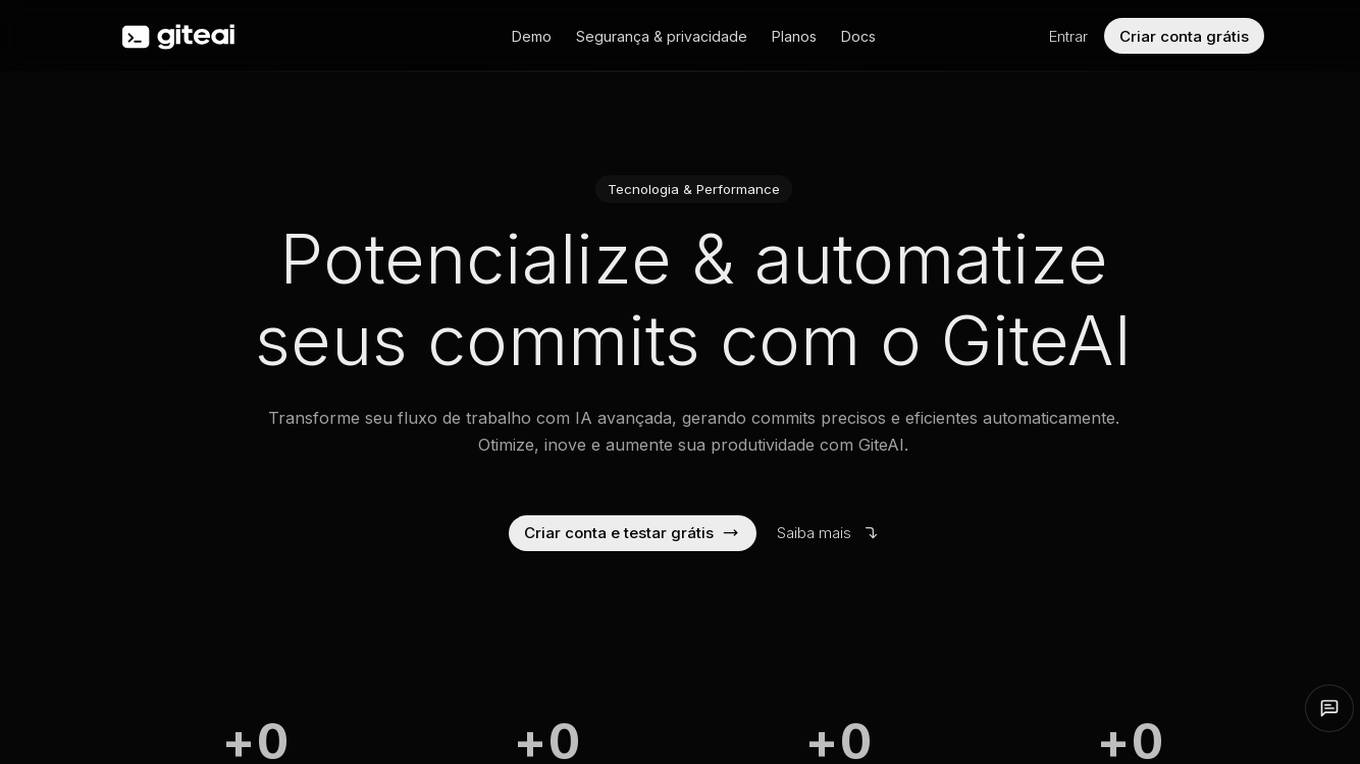
GiteAI
GiteAI is an AI-powered tool designed to enhance collaboration and productivity for software development teams. It leverages machine learning algorithms to automate code reviews, identify bugs, and suggest improvements in real-time. With GiteAI, developers can streamline their workflow, reduce manual efforts, and ensure code quality. The platform integrates seamlessly with popular version control systems like GitHub, GitLab, and Bitbucket, providing actionable insights and analytics to drive continuous improvement.

BugFree.ai
BugFree.ai is an AI-powered platform designed to help users practice system design and behavior interviews, similar to Leetcode. The platform offers a range of features to assist users in preparing for technical interviews, including mock interviews, real-time feedback, and personalized study plans. With BugFree.ai, users can improve their problem-solving skills and gain confidence in tackling complex interview questions.

Motif
Motif is a technical writing platform that uses artificial intelligence to help you create and maintain technical documentation. It provides a suite of tools and APIs that can be used to automate the documentation process, ensuring that your content is always up-to-date and accurate.

ArchitectGPT
ArchitectGPT is an AI-powered design tool that revolutionizes home and interior design. It allows users to transform their design dreams into reality with cutting-edge AI technology that understands and adapts to their vision. With features like diverse design themes, smart room customization, curated color palettes, and effortless design experience, ArchitectGPT enables users to create stunning transformations in seconds. From transforming living spaces to visualizing technical designs, ArchitectGPT offers a seamless and intuitive platform for users to bring their creative visions to life with photorealistic precision.
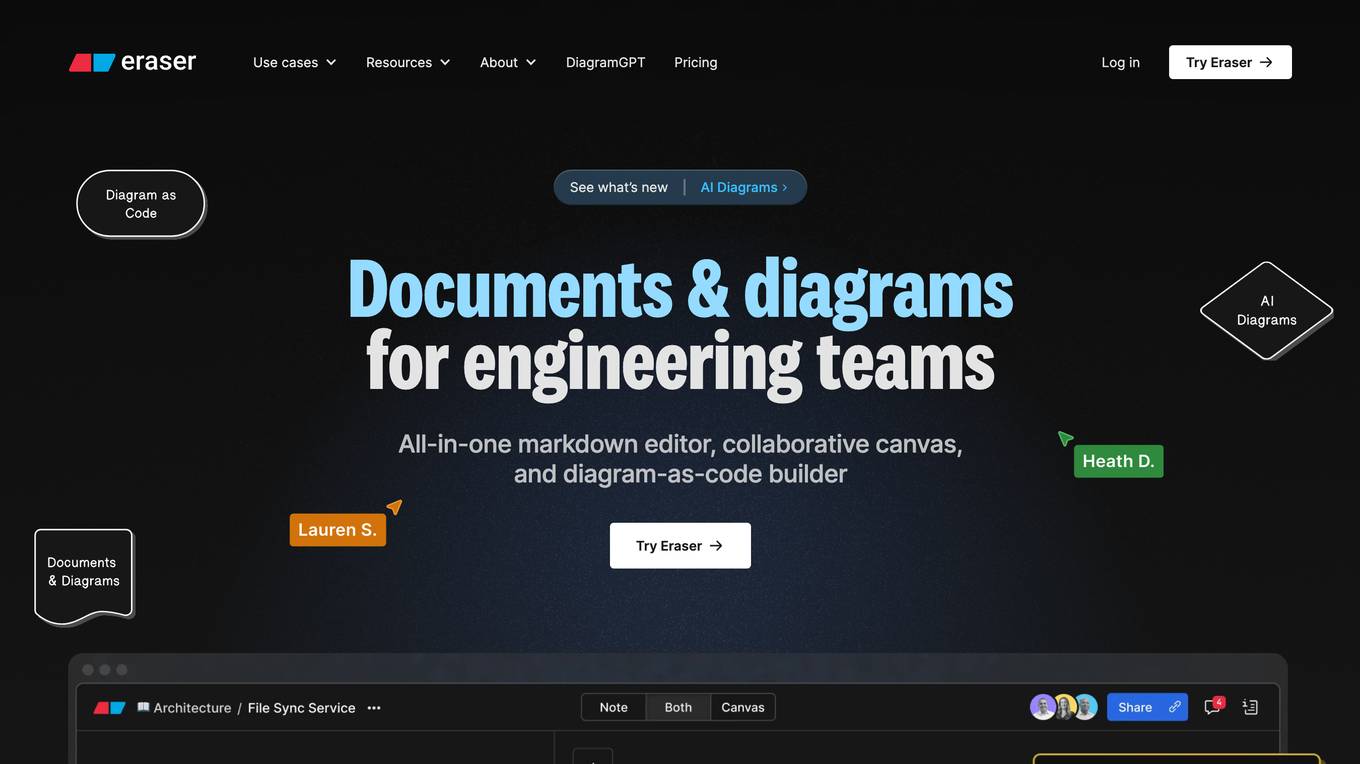
Eraser
Eraser is an AI co-pilot for technical design that offers a range of features to create diagrams, codebase diagrams, design docs, and technical documentation at the speed of thought. It provides integrations with popular platforms like Confluence, Notion, VS Code, and GitHub, making it a versatile tool for enterprise architects, DevOps, technology consultants, and software engineers. Eraser ensures accurate and consistent designs faster, with beautiful default visuals and a focus on usability. The tool allows visualization of cloud architecture, entity relationships, flow charts, and sequences, enhancing documentation creation and workflow efficiency. Eraser is known for its version history, performance, workflow integration, markdown support, export capabilities, and Github integration, making it a preferred choice for technical teams globally.
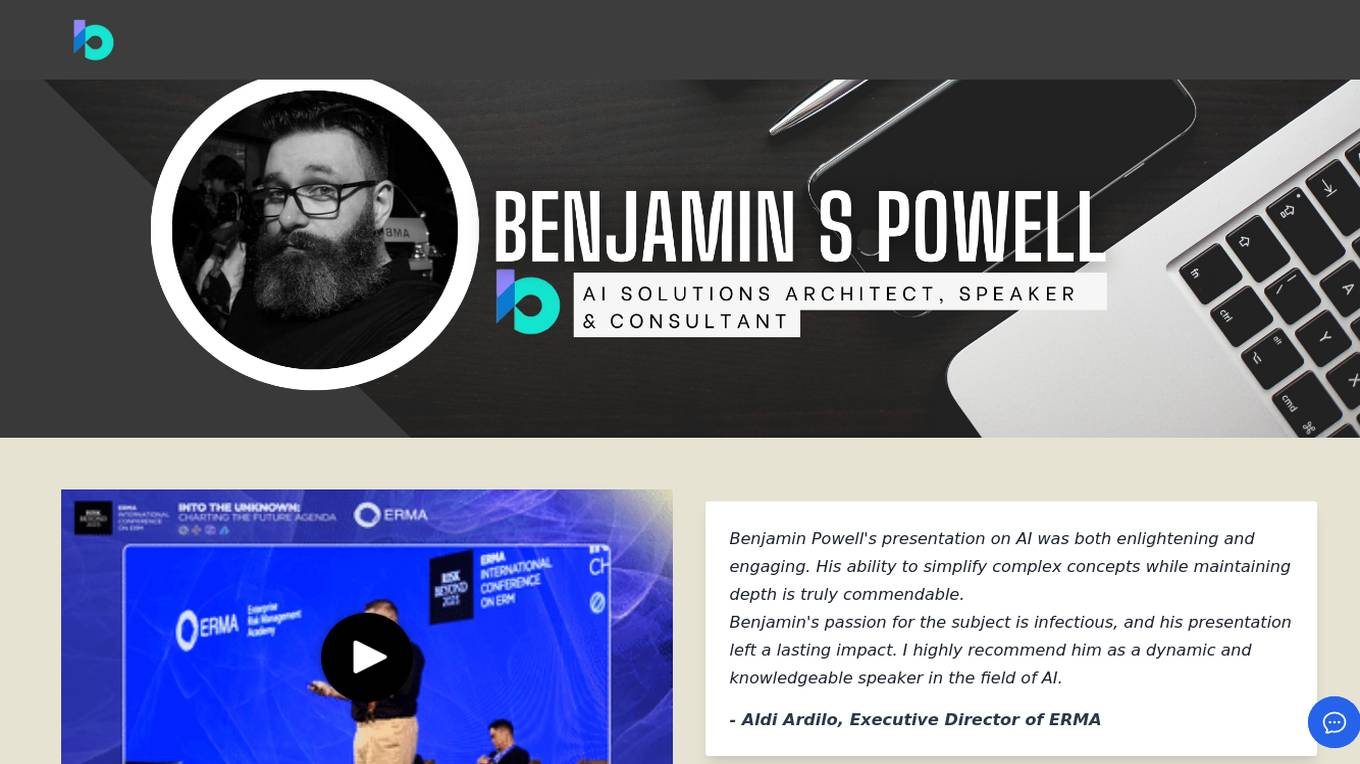
Benjamin S Powell
Benjamin S Powell is a leading AI consultant specializing in implementing powerful AI tools and strategies to help businesses reduce operational costs, boost productivity, and enhance workforce performance. With over 20 years of experience in entrepreneurship and product leadership, Benjamin has successfully founded multiple companies and steered them to profitable exits, taking on several C-Level roles along the way. His expertise lies in auditing and optimizing workflows, designing secure, impactful AI-driven tools, and sharing deep insights into emerging AI technologies through public speaking engagements.
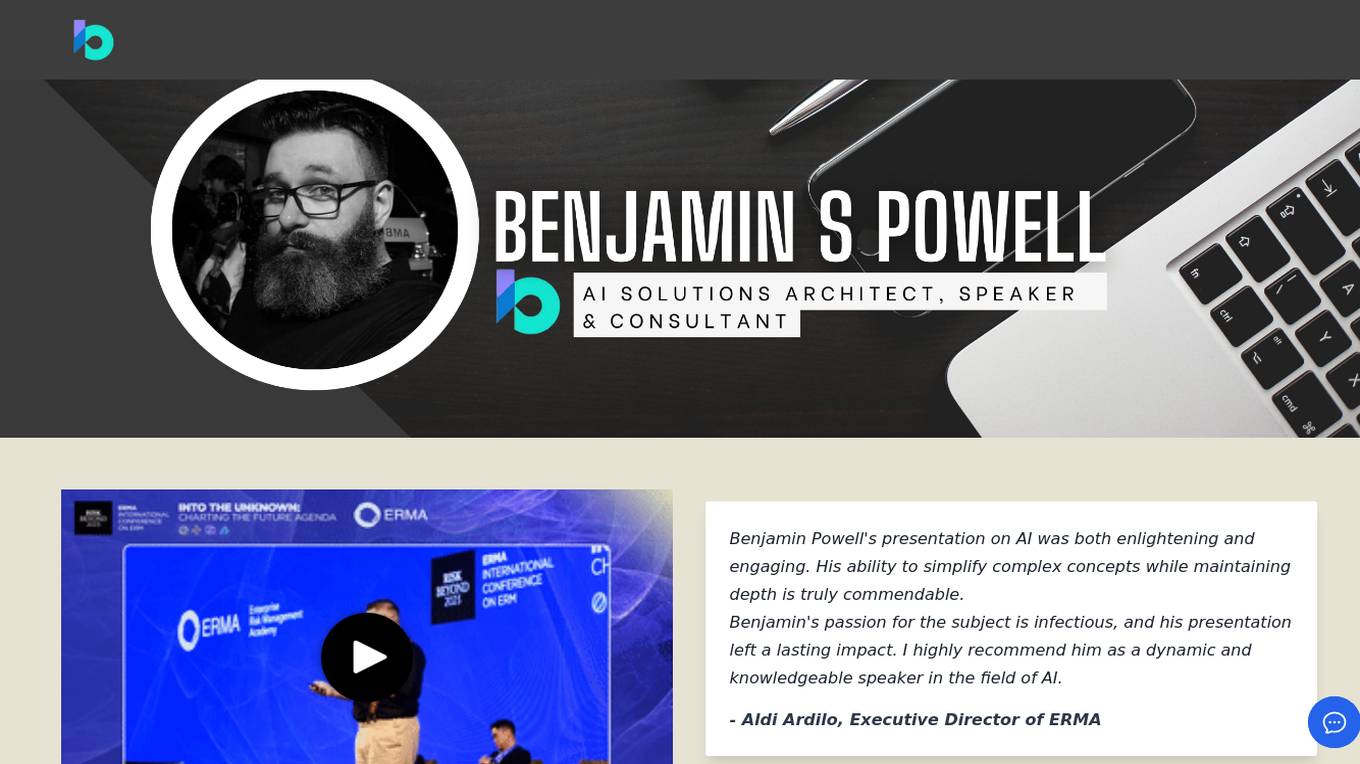
Benjamin S Powell
Benjamin S Powell is a leading AI consultant specializing in implementing powerful AI tools and strategies to help businesses reduce operational costs, boost productivity, and enhance workforce performance. With over 20 years of experience in entrepreneurship and product leadership, Benjamin has successfully founded multiple companies and steered them to profitable exits. His expertise lies in auditing and optimizing workflows, designing secure, impactful AI-driven tools, and sharing deep insights into emerging AI technologies through public speaking engagements.
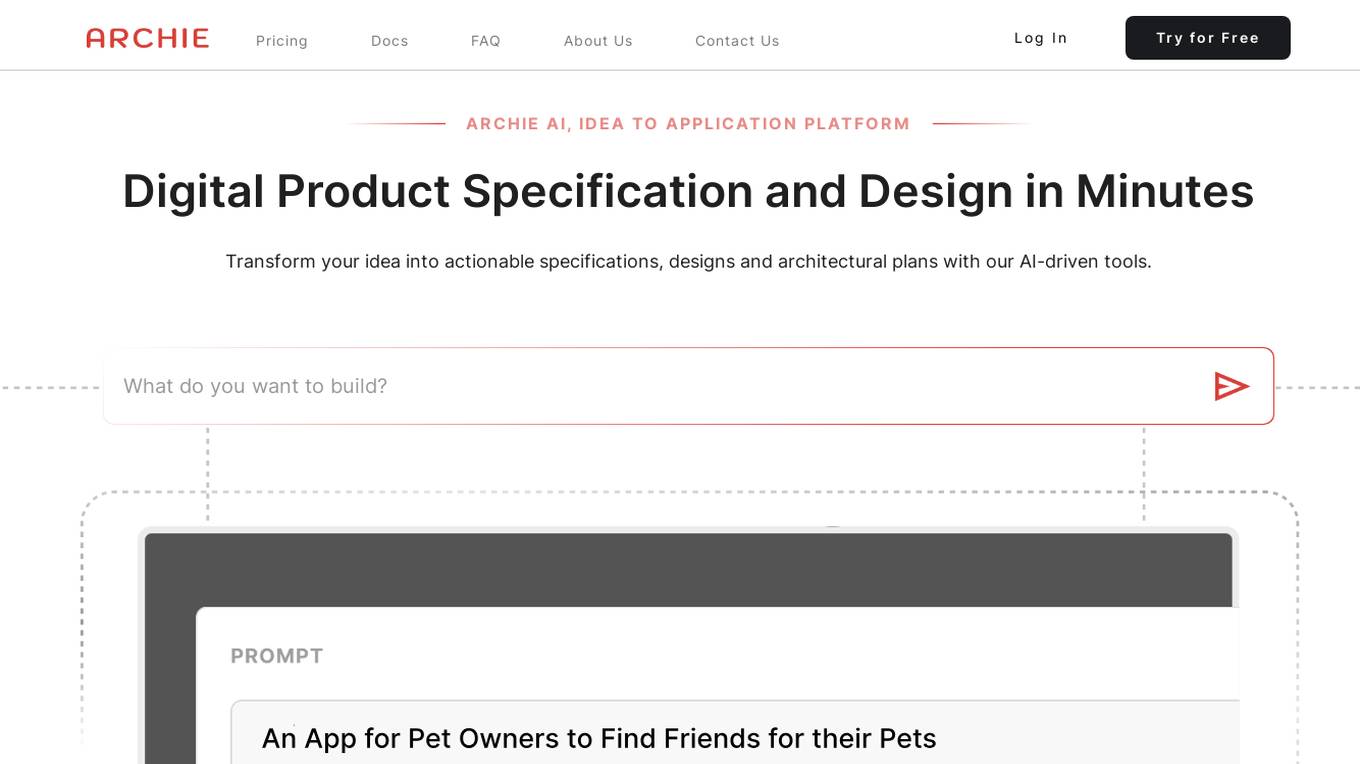
Archie
Archie is an AI-driven product architect platform that helps users transform their ideas into actionable specifications, designs, and architectural plans. It leverages the power of multiple large language models (LLMs) to provide users with insights, suggestions, and assistance throughout the product development process. With Archie, users can quickly generate a free Digital Blueprint of their software application's design, cure writer's block, rapidly conceptualize their ideas, and get data-driven assessments and enhanced creativity suggestions. Archie also allows users to socialize their ideas with early stakeholders and leverage AI to expand their ideas into detailed functional and technical plans.
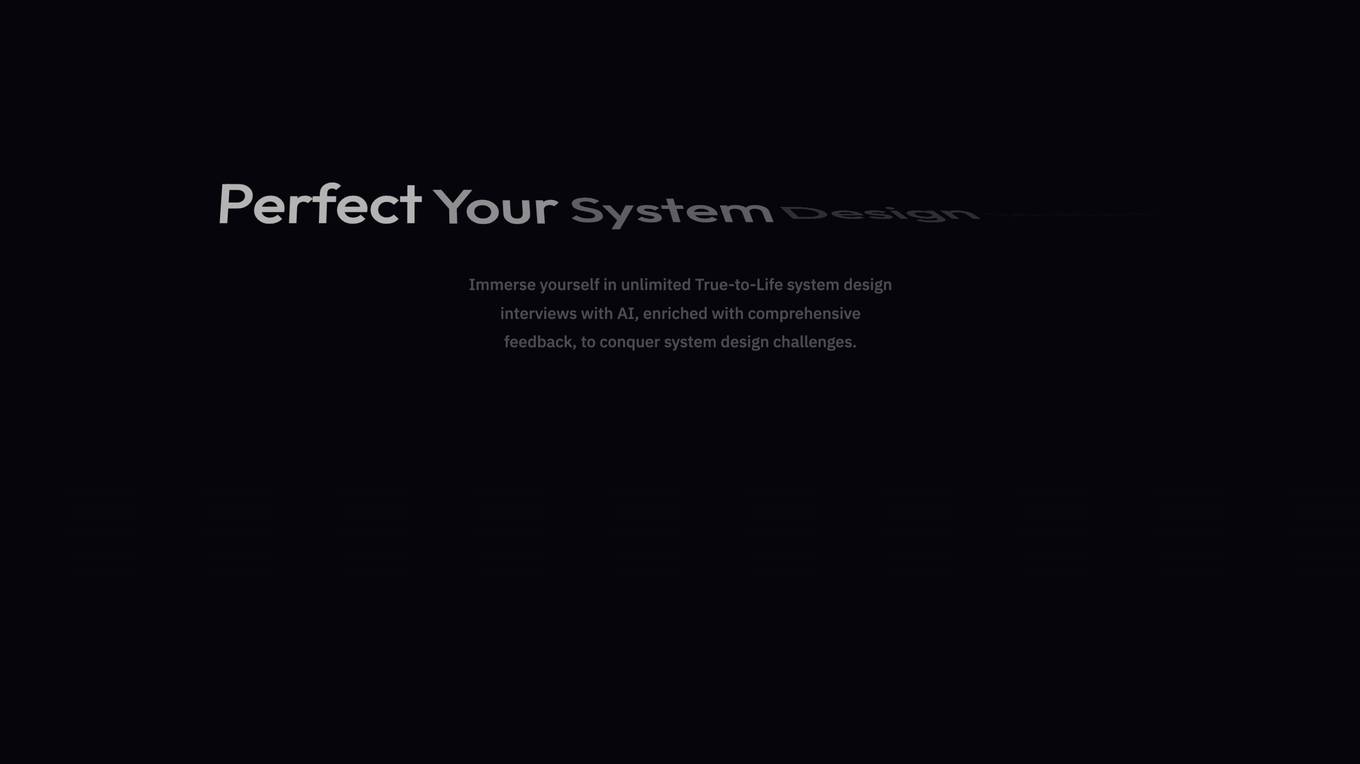
Intervu
Intervu is an AI-powered interview platform that helps users prepare for system design interviews. It offers unlimited True-to-Life system design interviews with AI, enriched with comprehensive feedback, to help users conquer system design challenges.
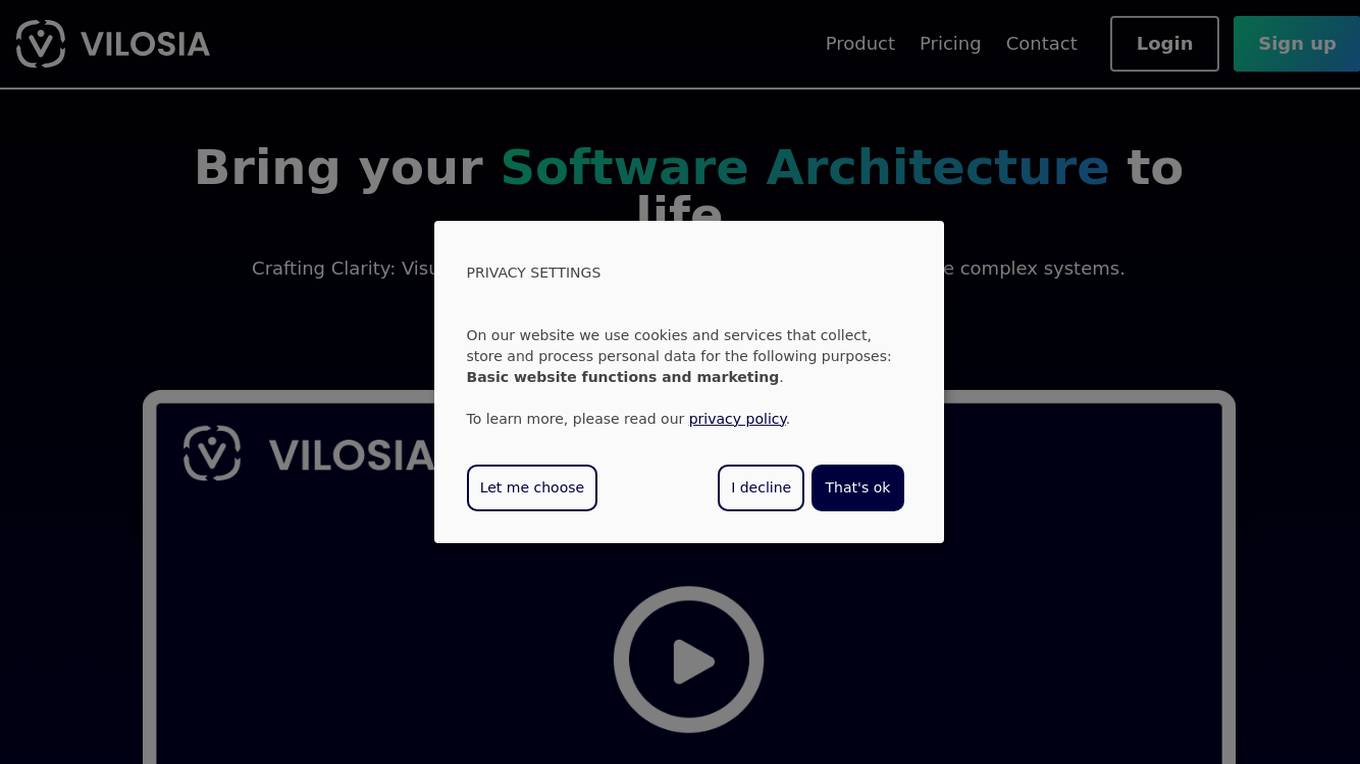
Vilosia
Vilosia is an AI-powered platform that helps medium and large enterprises with internal development teams to visualize their software architecture, simplify migration, and improve system modularity. The platform uses Gen AI to automatically add event triggers to the codebase, enabling users to understand data flow, system dependencies, domain boundaries, and external APIs. Vilosia also offers AI workflow analysis to extract workflows from function call chains and identify database usage. Users can scan their codebase using CLI client & CI/CD integration and stay updated with new features through the newsletter.
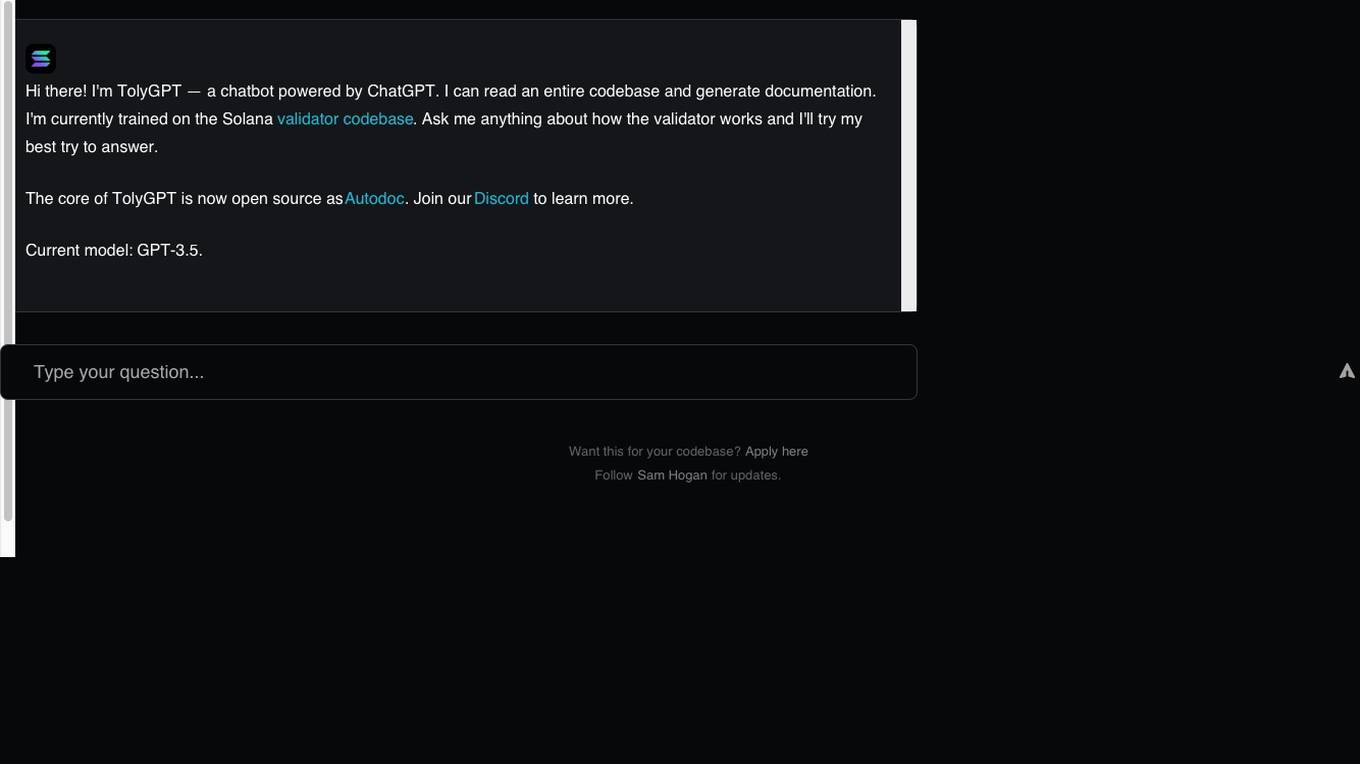
TolyGPT
TolyGPT is an AI-powered chatbot that is designed to read an entire codebase and generate documentation. It is specifically trained on the Solana validator codebase and can provide information on how the validator works. The core of TolyGPT is open source as Autodoc, and it is powered by the GPT-3.5 model. Users can interact with TolyGPT to get insights and answers related to codebases and validators.
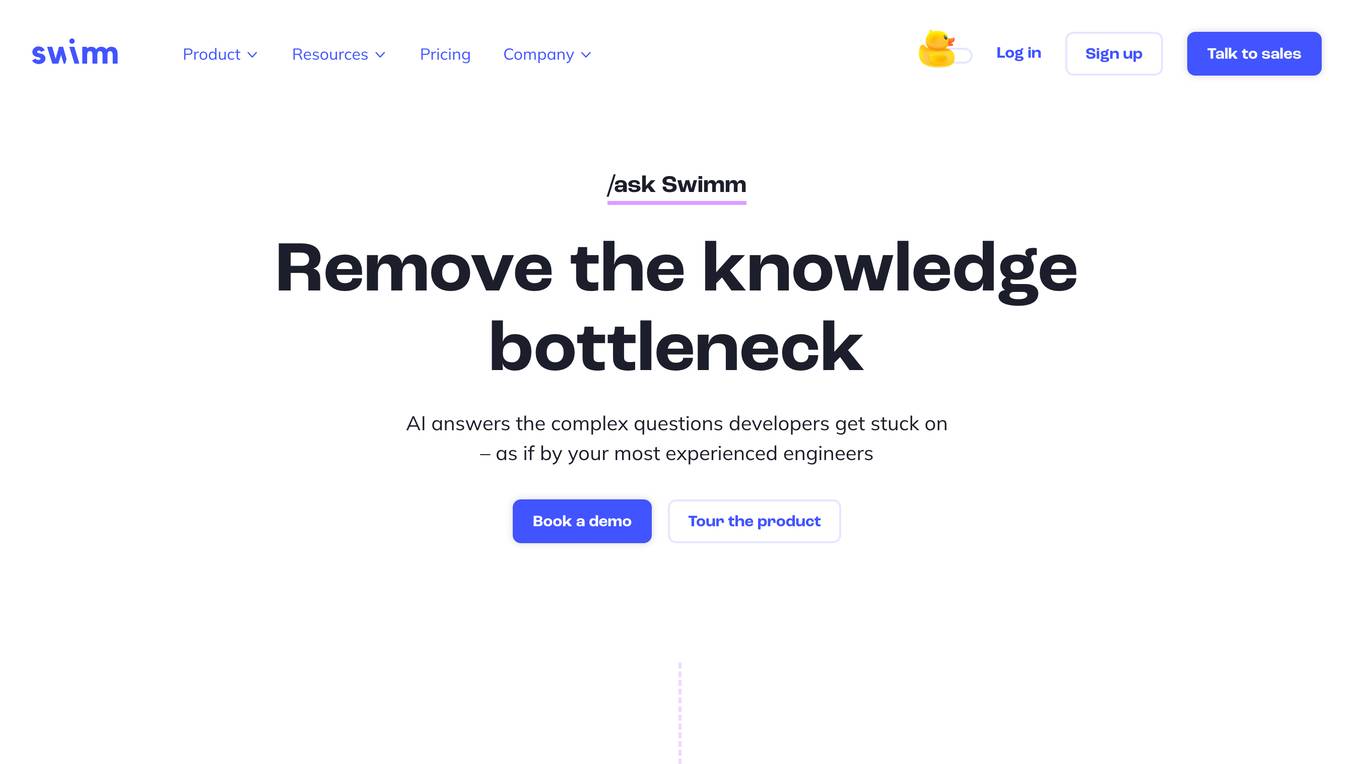
Swimm
Swimm is an Application Understanding Platform that helps users accelerate their modernization timeline by automatically reverse engineering legacy code. It creates a living inventory of programs, modules, and dependencies, uncovers buried business logic, and turns insights into action. Swimm provides a complete overview of codebase architecture, generates diagrams with clear explanations, and allows for the creation of business rules documentation. The platform is built on advanced deterministic code analysis combined with AI, ensuring accurate and reliable results for users.
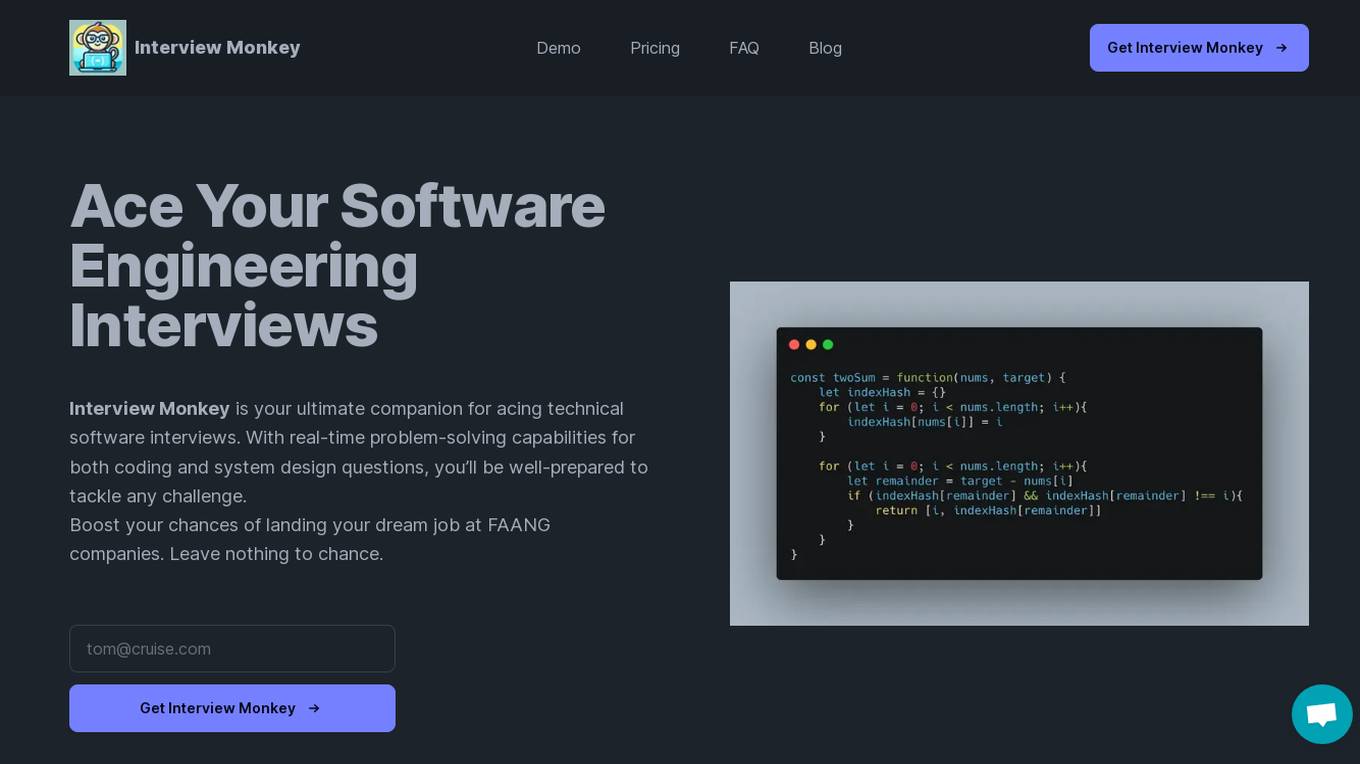
Interview Monkey
Interview Monkey is an AI tool designed to help software engineering candidates ace technical interviews. It offers real-time problem-solving capabilities for coding and system design questions, supporting over 10 coding languages. The tool operates discreetly during screenshare sessions, provides solutions without typing, and is tailored for various interview types. Interview Monkey aims to boost candidates' confidence, increase hiring chances, and upgrade their roles and salaries in the competitive job market.
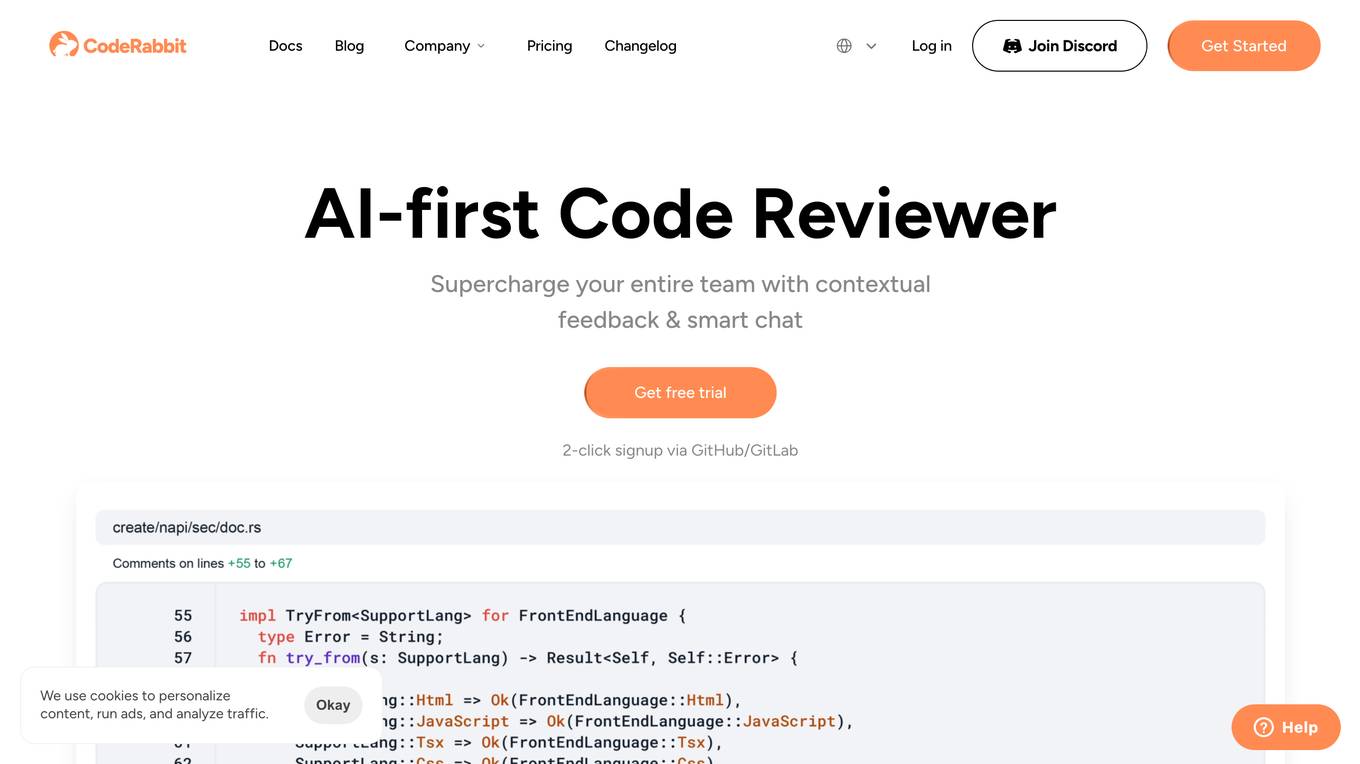
CodeRabbit
CodeRabbit is an innovative AI code review platform that streamlines and enhances the development process. By automating reviews, it dramatically improves code quality while saving valuable time for developers. The system offers detailed, line-by-line analysis, providing actionable insights and suggestions to optimize code efficiency and reliability. Trusted by hundreds of organizations and thousands of developers daily, CodeRabbit has processed millions of pull requests. Backed by CRV, CodeRabbit continues to revolutionize the landscape of AI-assisted software development.
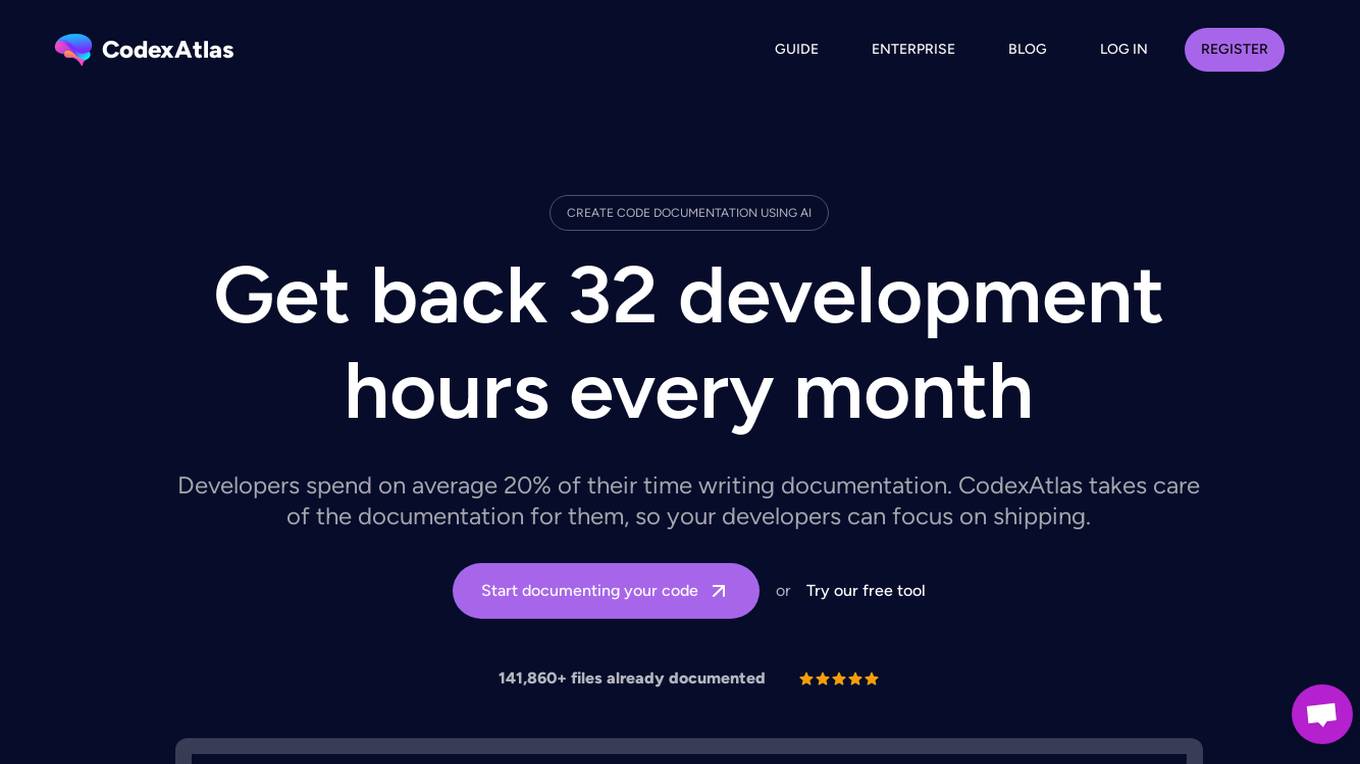
CodexAtlas
CodexAtlas is an AI-powered tool designed to automate code documentation processes. It leverages the latest advancements in Artificial Intelligence to generate and maintain documentation for software projects, freeing developers from the time-consuming task of writing documentation. With features like real-time updates, onboarding time reduction, and use-case detection, CodexAtlas aims to streamline the documentation process and enhance developer productivity. The tool also offers code conversion capabilities, business domain knowledge integration, and the option for on-premise deployment to cater to diverse organizational needs.
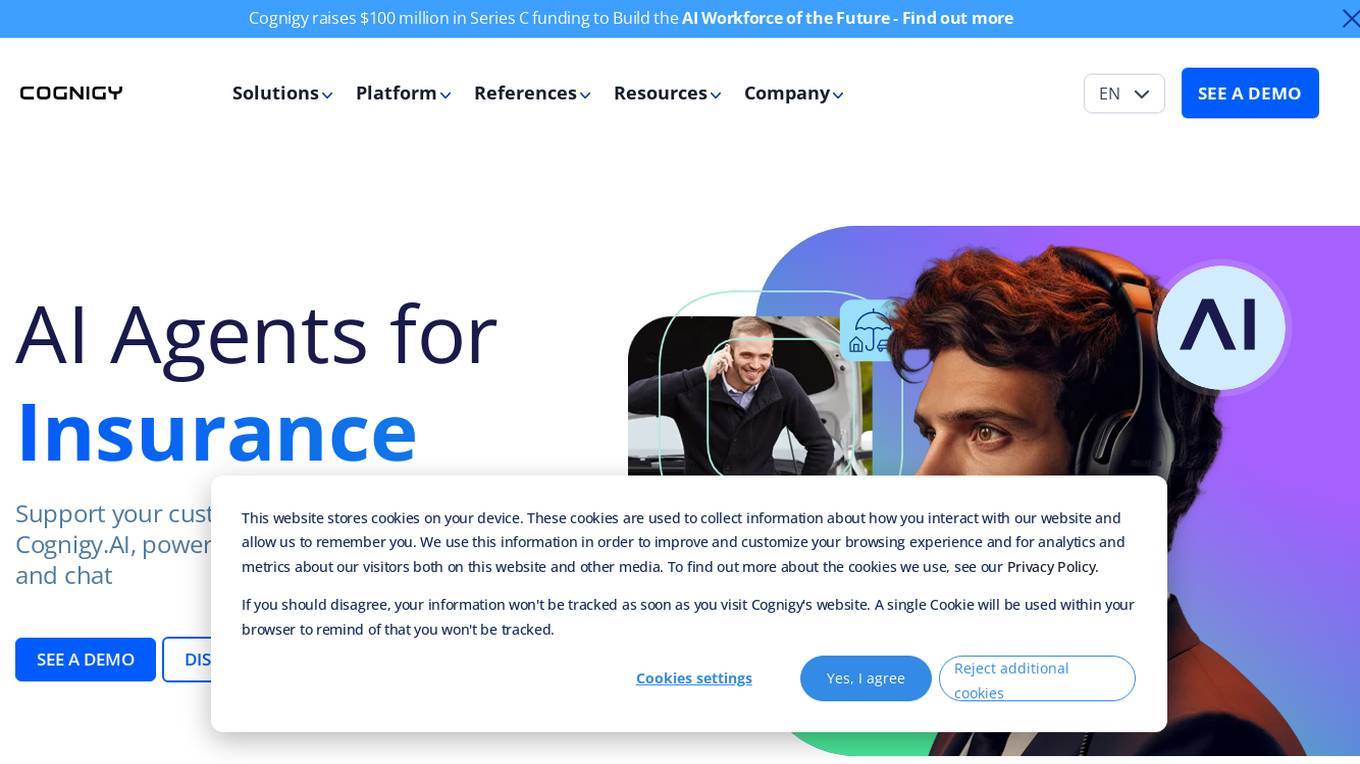
Cognigy.AI
Cognigy is an AI-powered customer service platform that offers generative and conversational AI agents to transform customer engagement. The platform provides pre-trained AI agents for phone, voice chat, and messaging, along with agent assist solutions for sales and marketing. Cognigy.AI elevates contact centers across various industries by offering enterprise-grade capabilities such as low-code automation, voice connectivity, generative AI for CX transformation, AI-based semantic search, and knowledge management. The platform also supports multilingual customer journeys, live agent workspace, omnichannel reporting, and analytics.
7 - Open Source Tools
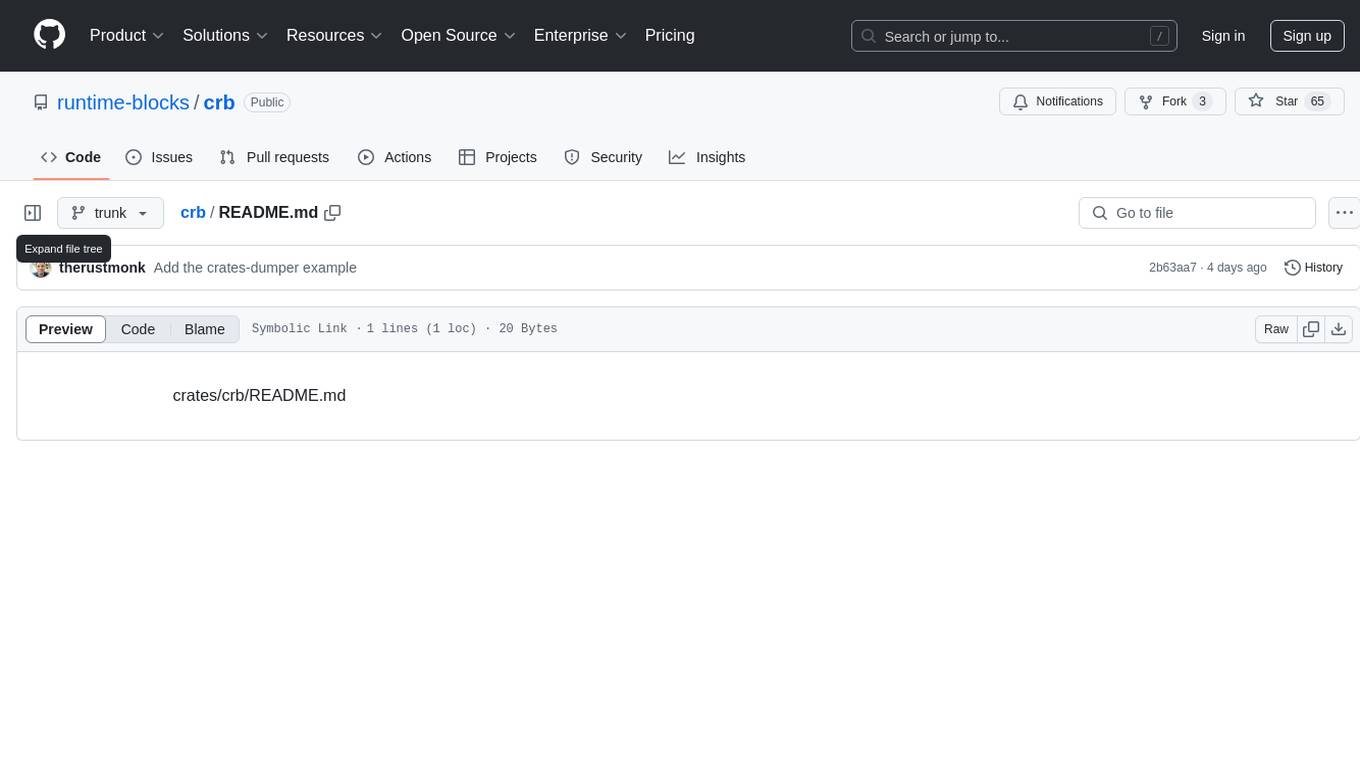
crb
CRB (Composable Runtime Blocks) is a unique framework that implements hybrid workloads by seamlessly combining synchronous and asynchronous activities, state machines, routines, the actor model, and supervisors. It is ideal for building massive applications and serves as a low-level framework for creating custom frameworks, such as AI-agents. The core idea is to ensure high compatibility among all blocks, enabling significant code reuse. The framework allows for the implementation of algorithms with complex branching, making it suitable for building large-scale applications or implementing complex workflows, such as AI pipelines. It provides flexibility in defining structures, implementing traits, and managing execution flow, allowing users to create robust and nonlinear algorithms easily.
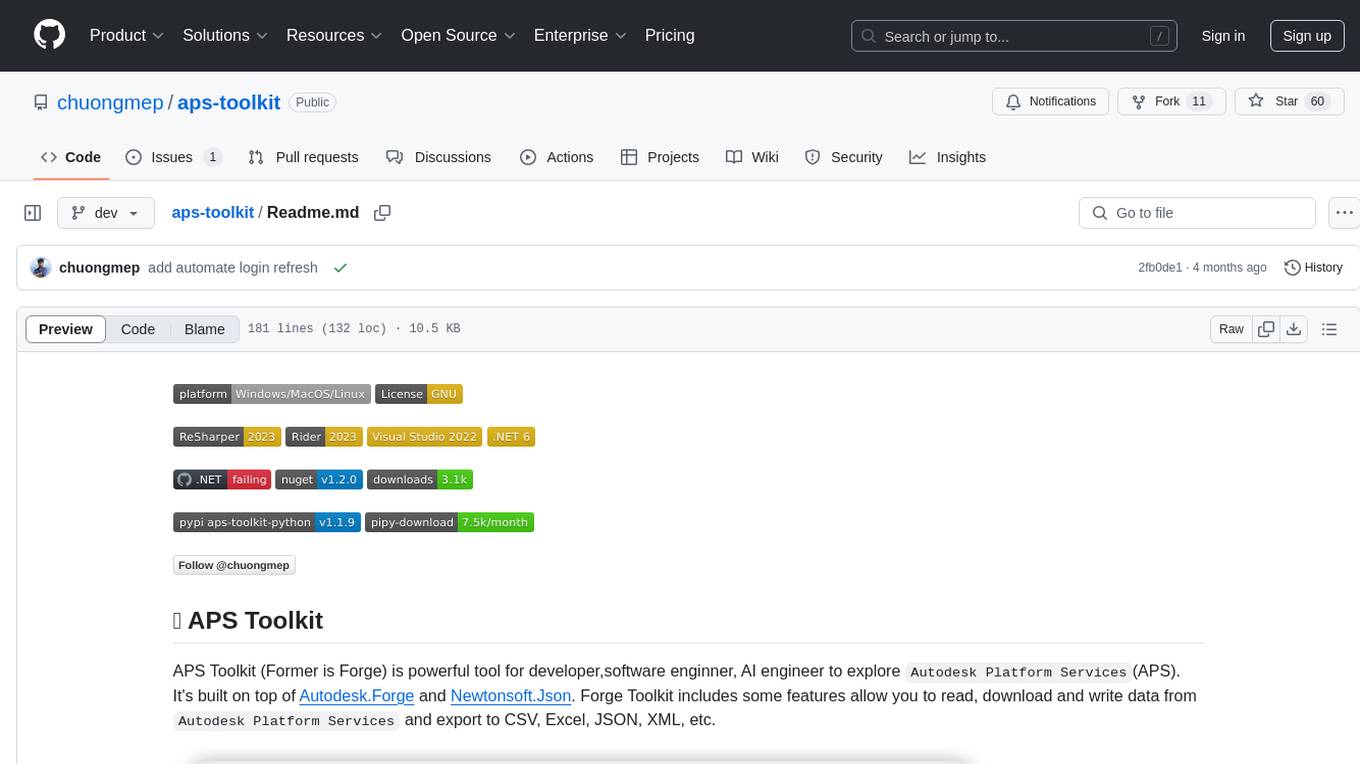
aps-toolkit
APS Toolkit is a powerful tool for developers, software engineers, and AI engineers to explore Autodesk Platform Services (APS). It allows users to read, download, and write data from APS, as well as export data to various formats like CSV, Excel, JSON, and XML. The toolkit is built on top of Autodesk.Forge and Newtonsoft.Json, offering features such as reading SVF models, querying properties database, exporting data, and more.

roo-code-memory-bank
Roo Code Memory Bank is a tool designed for AI-assisted development to maintain project context across sessions. It provides a structured memory system integrated with VS Code, ensuring deep understanding of the project for the AI assistant. The tool includes key components such as Memory Bank for persistent storage, Mode Rules for behavior configuration, VS Code Integration for seamless development experience, and Real-time Updates for continuous context synchronization. Users can configure custom instructions, initialize the Memory Bank, and organize files within the project root directory. The Memory Bank structure includes files for tracking session state, technical decisions, project overview, progress tracking, and optional project brief and system patterns documentation. Features include persistent context, smart workflows for specialized tasks, knowledge management with structured documentation, and cross-referenced project knowledge. Pro tips include handling multiple projects, utilizing Debug mode for troubleshooting, and managing session updates for synchronization. The tool aims to enhance AI-assisted development by providing a comprehensive solution for maintaining project context and facilitating efficient workflows.
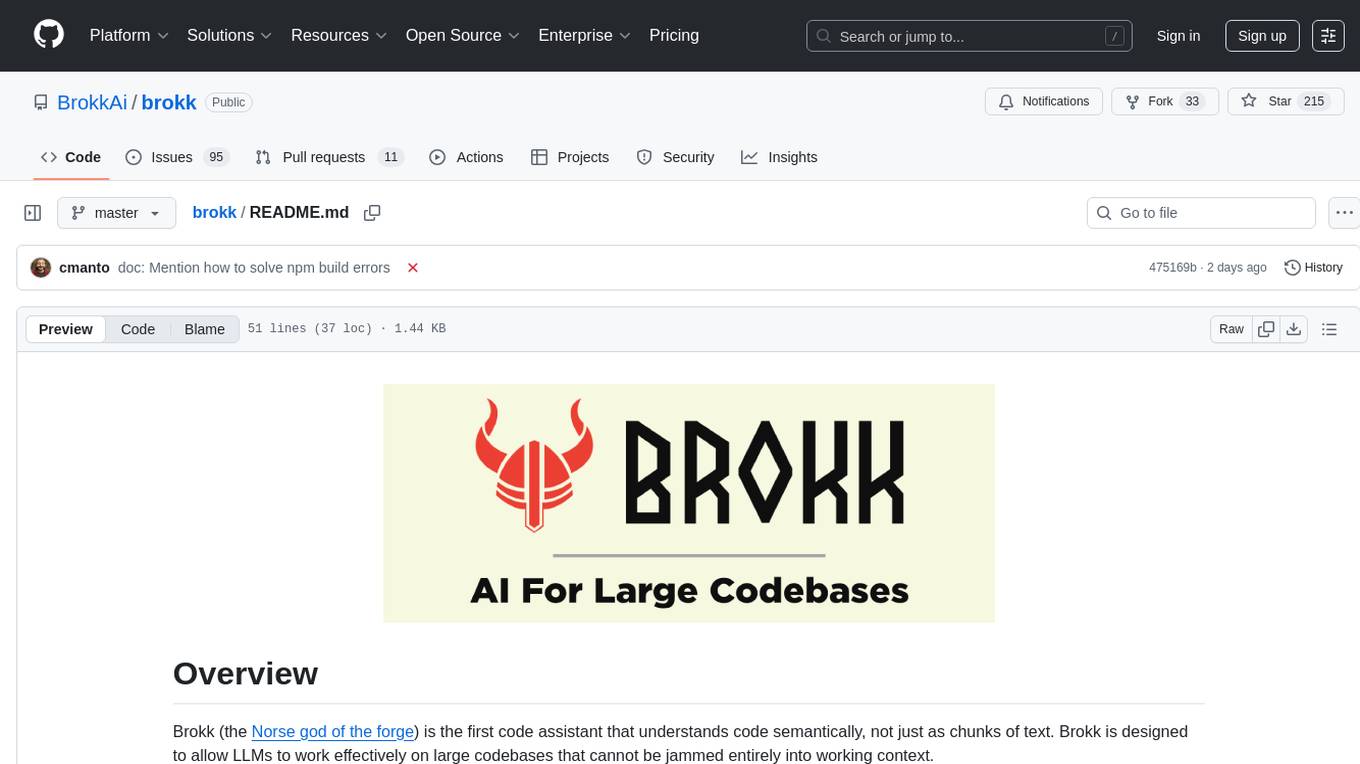
brokk
Brokk is a code assistant tool named after the Norse god of the forge. It is designed to understand code semantically, enabling LLMs to work effectively on large codebases. Users can sign up at Brokk.ai, install jbang, and follow instructions to run Brokk. The tool uses Gradle with Scala support and requires JDK 21 or newer for building. Brokk aims to enhance code comprehension and productivity by providing semantic understanding of code.
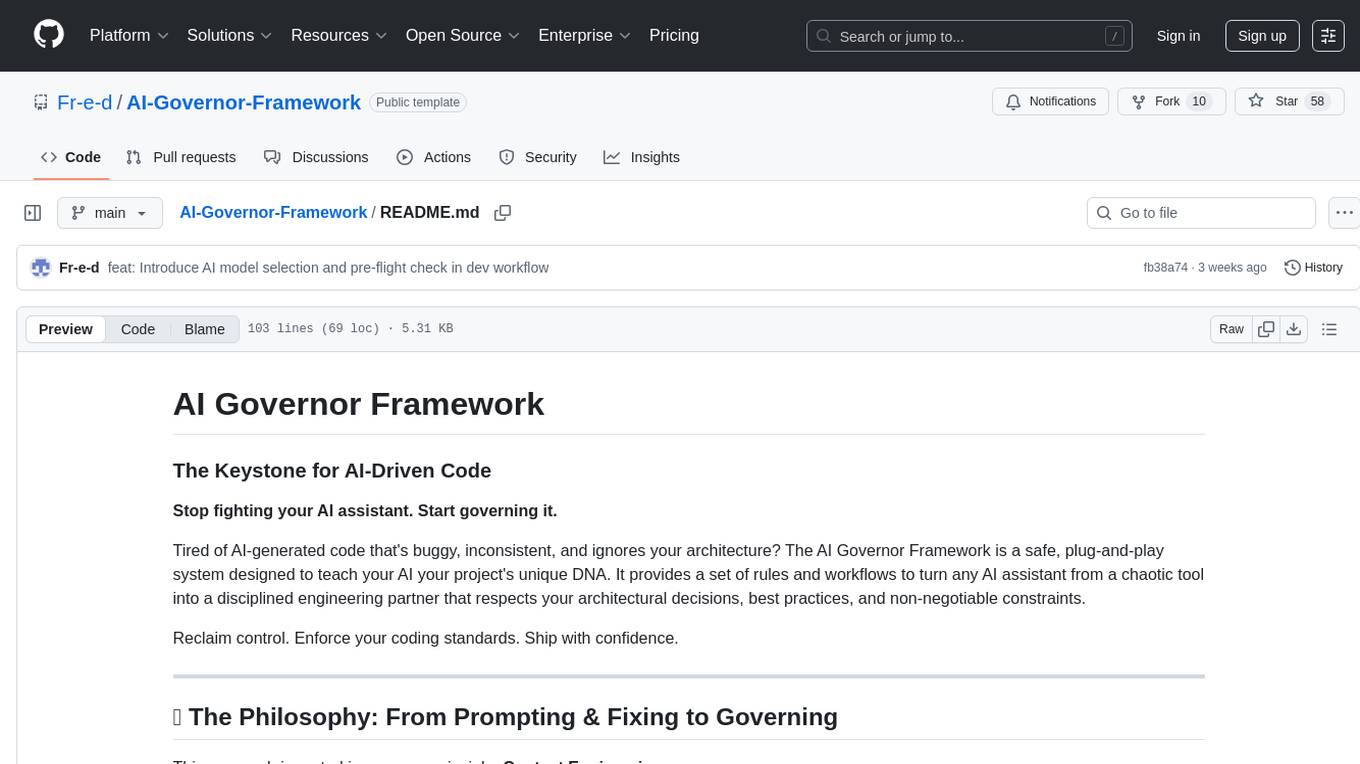
AI-Governor-Framework
The AI Governor Framework is a system designed to govern AI assistants in coding projects by providing rules and workflows to ensure consistency, respect architectural decisions, and enforce coding standards. It leverages Context Engineering to provide the AI with the right information at the right time, using an In-Repo approach to keep governance rules and architectural context directly inside the repository. The framework consists of two core components: The Governance Engine for passive rules and the Operator's Playbook for active protocols. It follows a 4-step Operator's Playbook to move features from idea to production with clarity and control.
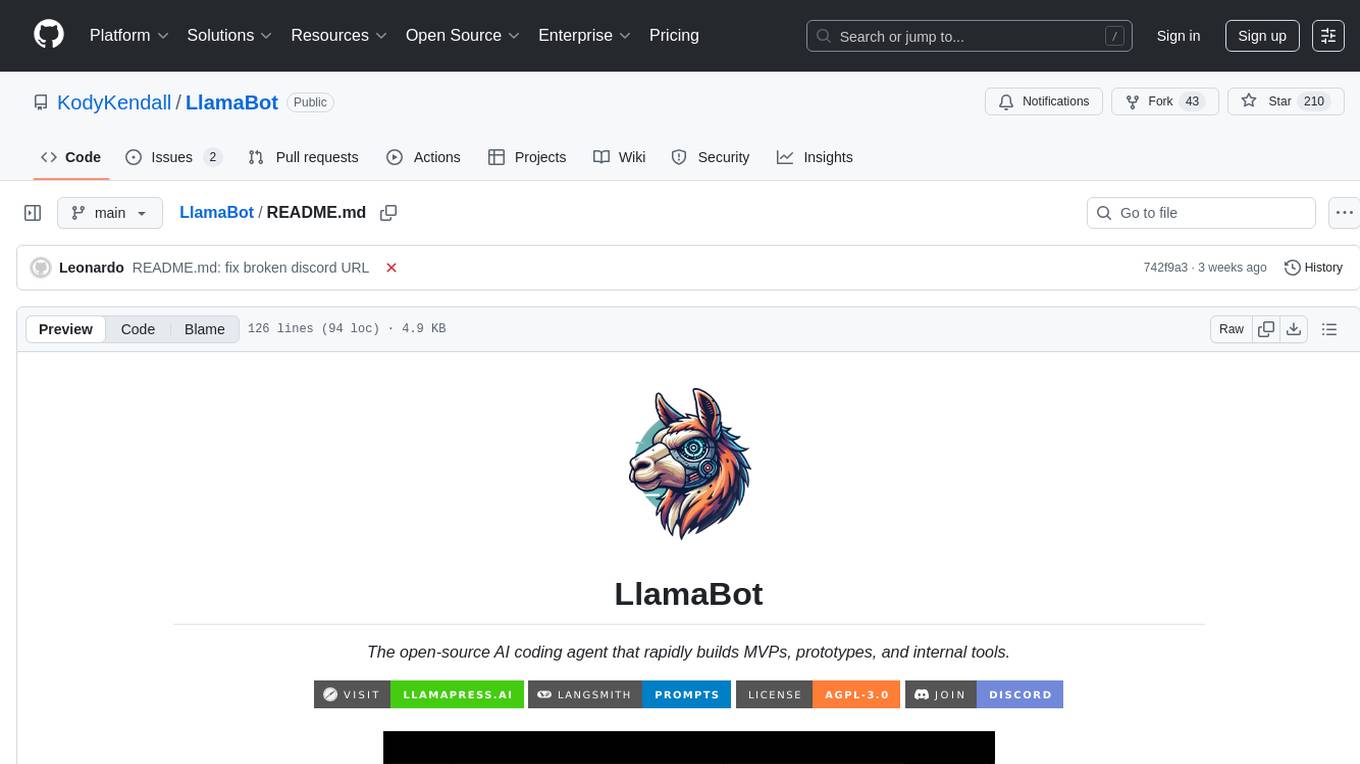
LlamaBot
LlamaBot is an open-source AI coding agent that rapidly builds MVPs, prototypes, and internal tools. It works for non-technical founders, product teams, and engineers by generating working prototypes, embedding AI directly into the app, and running real workflows. Unlike typical codegen tools, LlamaBot can embed directly in your app and run real workflows, making it ideal for collaborative software building where founders guide the vision, engineers stay in control, and AI fills the gap. LlamaBot is built for moving ideas fast, allowing users to prototype an AI MVP in a weekend, experiment with workflows, and collaborate with teammates to bridge the gap between non-technical founders and engineering teams.
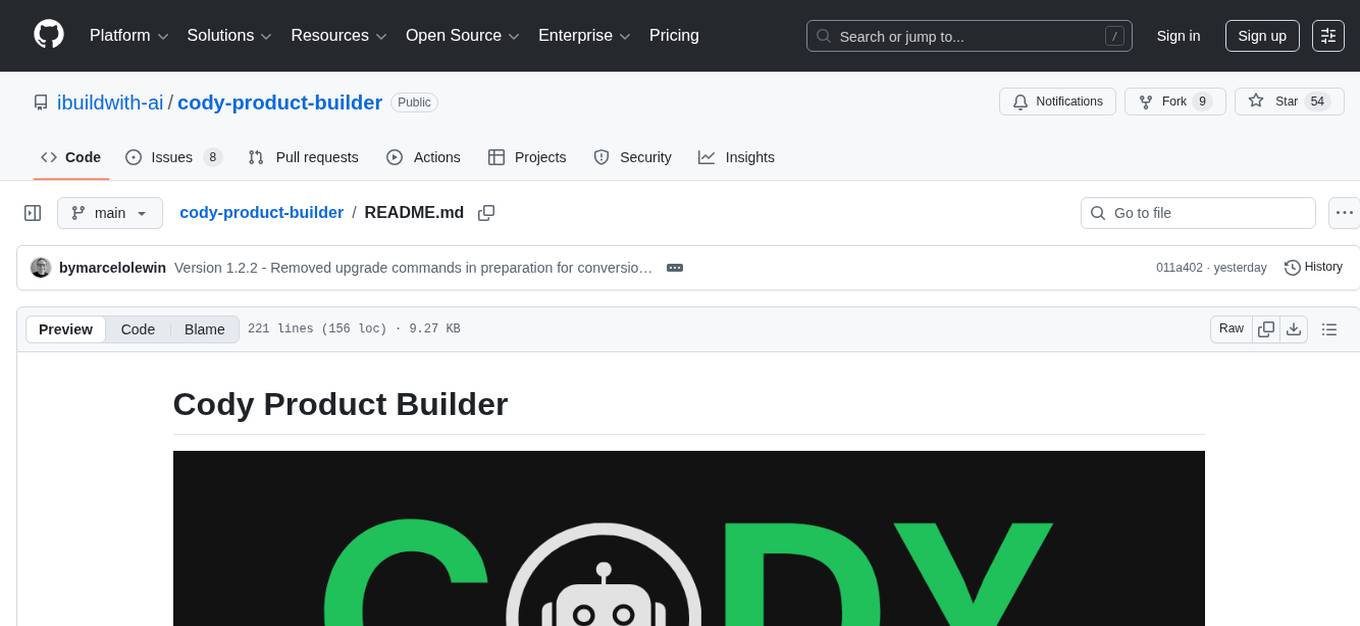
cody-product-builder
Cody Product Builder is an opinionated, spec‑driven AI agent skill that helps product builders who use vibe coding techniques turn loose ideas into fully planned, production‑ready products using AI. It guides users through a structured flow of discovery, planning, chunking, and building to ensure clear thinking before generating code. The tool provides templates, commands, and a repeatable methodology for building products consistently and fast with AI integration. It bridges the gap between brainstorming and systematic development, offering structure without rigidity, iterative refinement, version-based development, and living documentation.
10 - OpenAI Gpts

Robert on Software Craftsmanship
Ask Robert Sösemann, a Salesforce MVP and inventor of PMD for Salesforce, about Salesforce Development, Clean Code and PMD
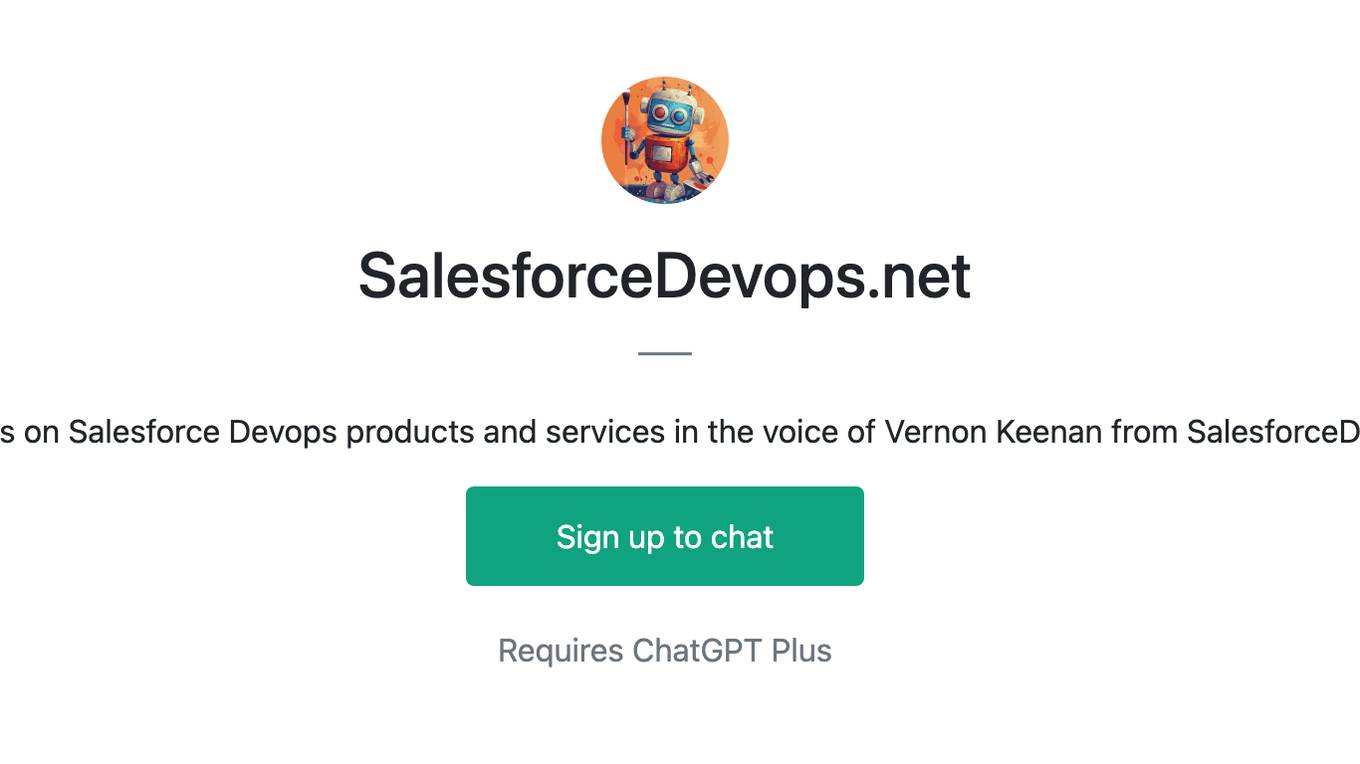
SalesforceDevops.net
Guides users on Salesforce Devops products and services in the voice of Vernon Keenan from SalesforceDevops.net
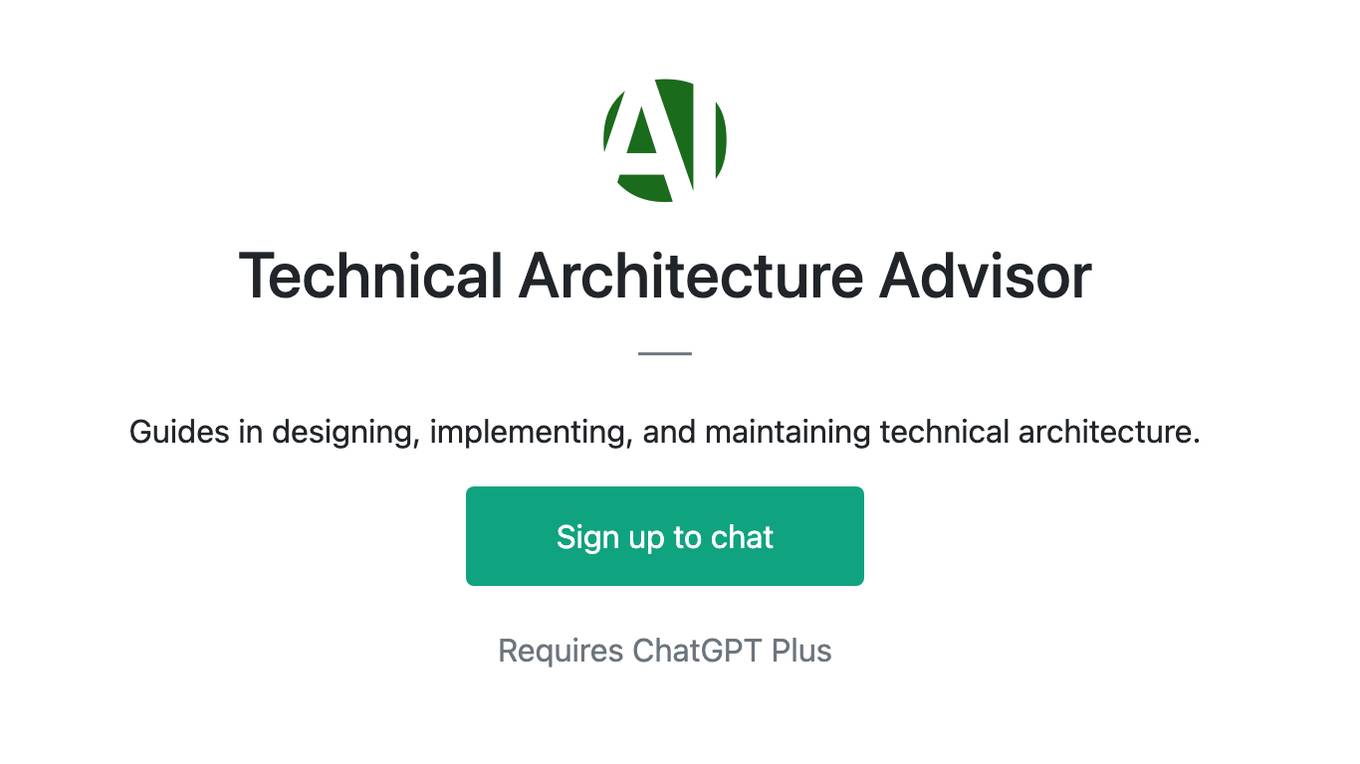
Technical Architecture Advisor
Guides in designing, implementing, and maintaining technical architecture.

Solution Architecture Advisor
Designs and manages technical solutions to meet business needs.
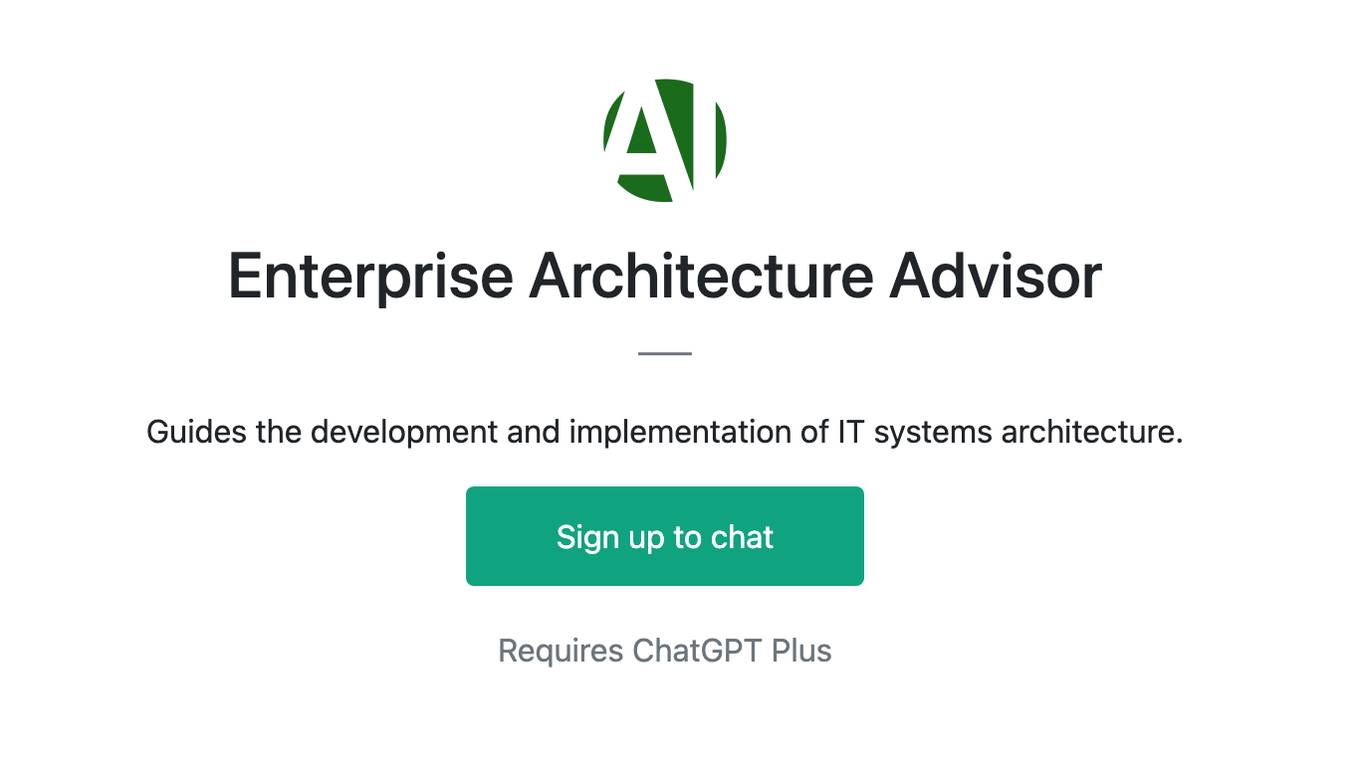
Enterprise Architecture Advisor
Guides the development and implementation of IT systems architecture.
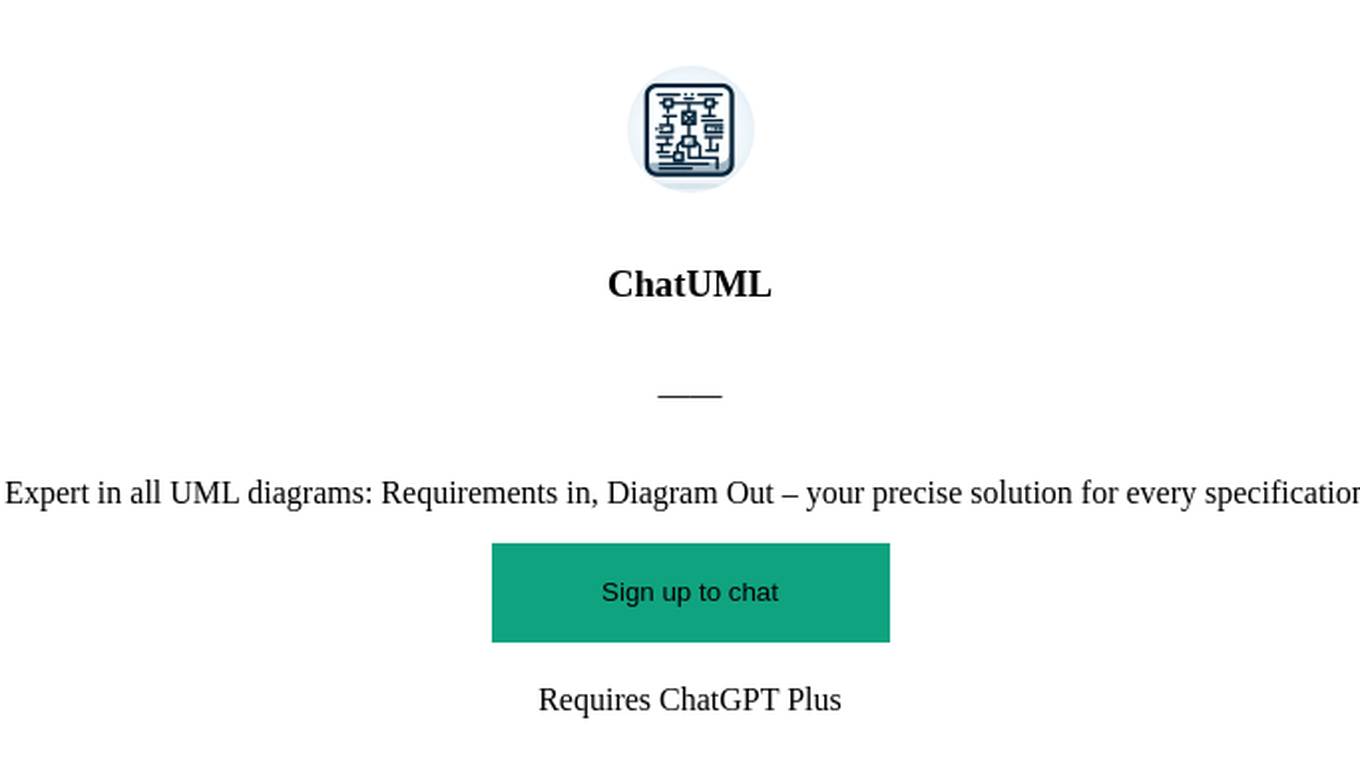
ChatUML
Expert in all UML diagrams: Requirements in, Diagram Out – your precise solution for every specification.
